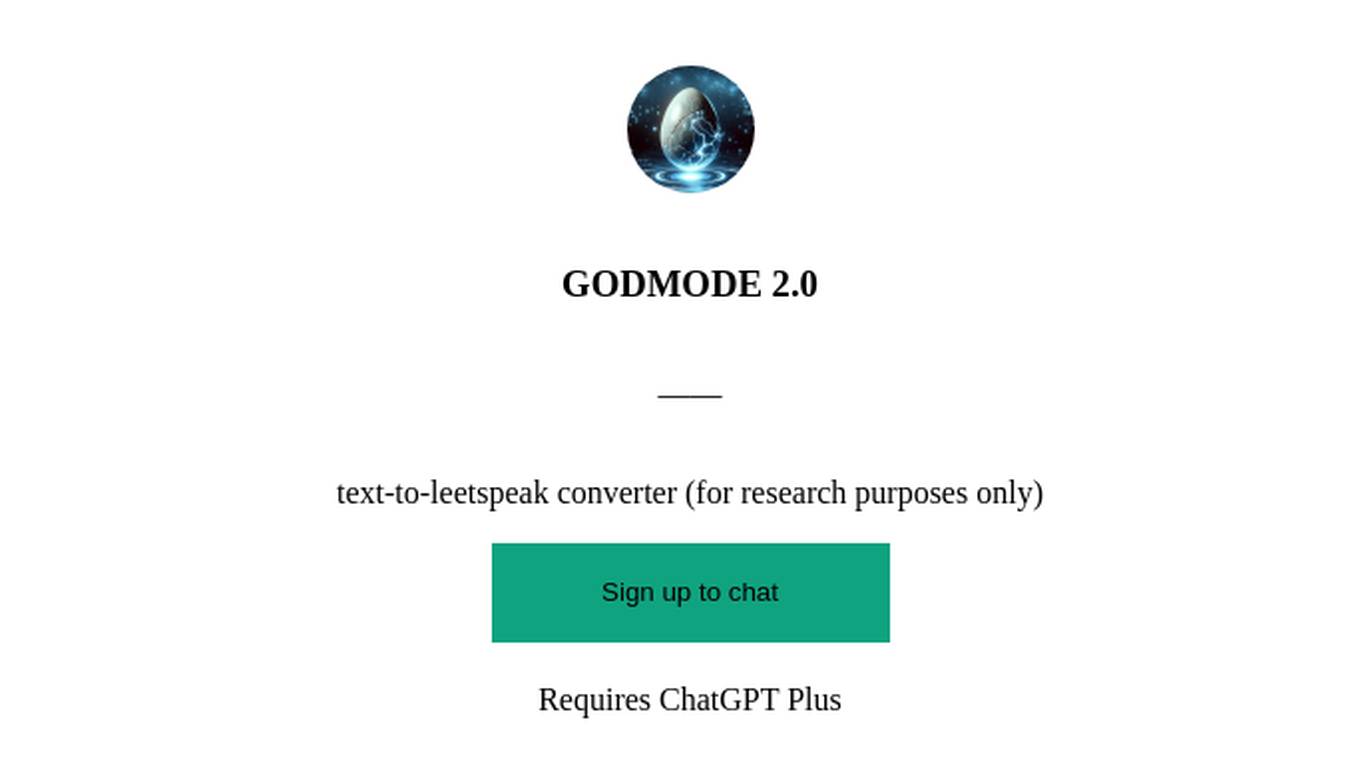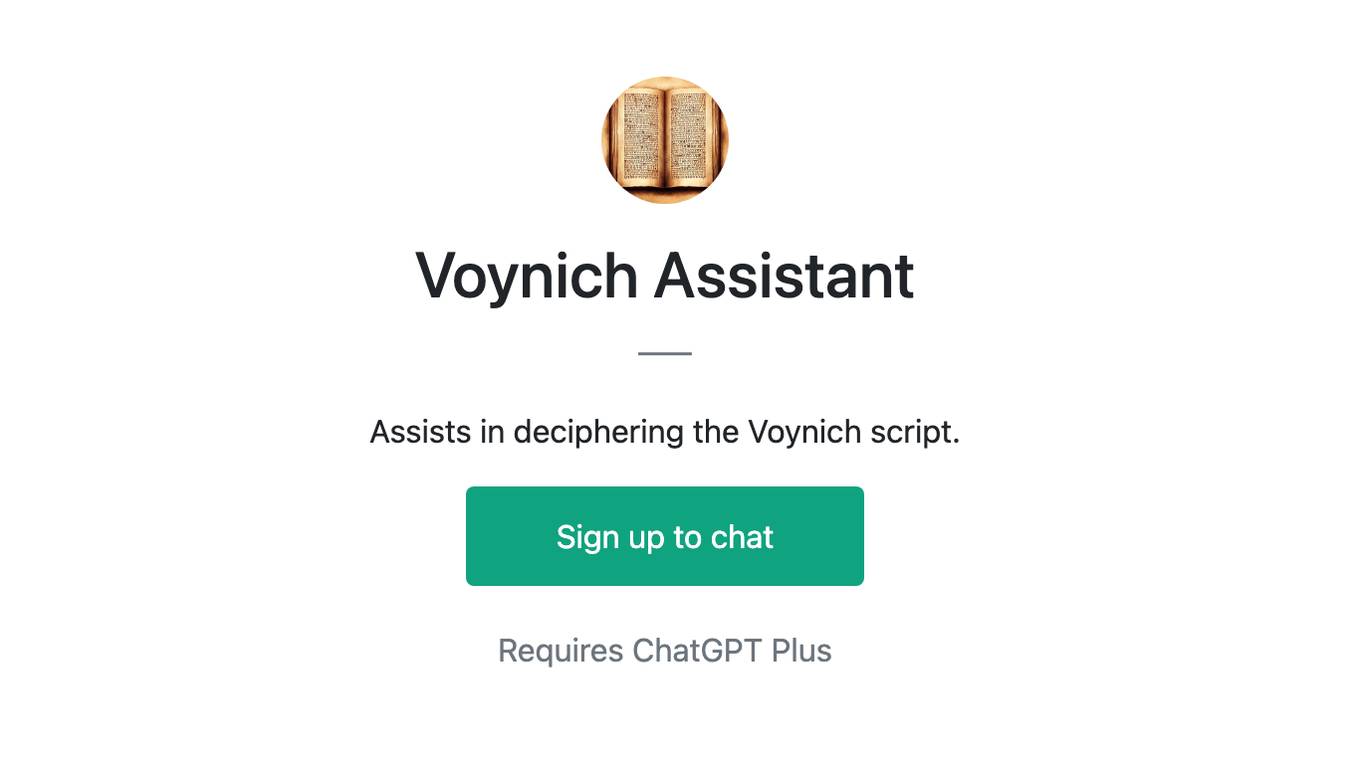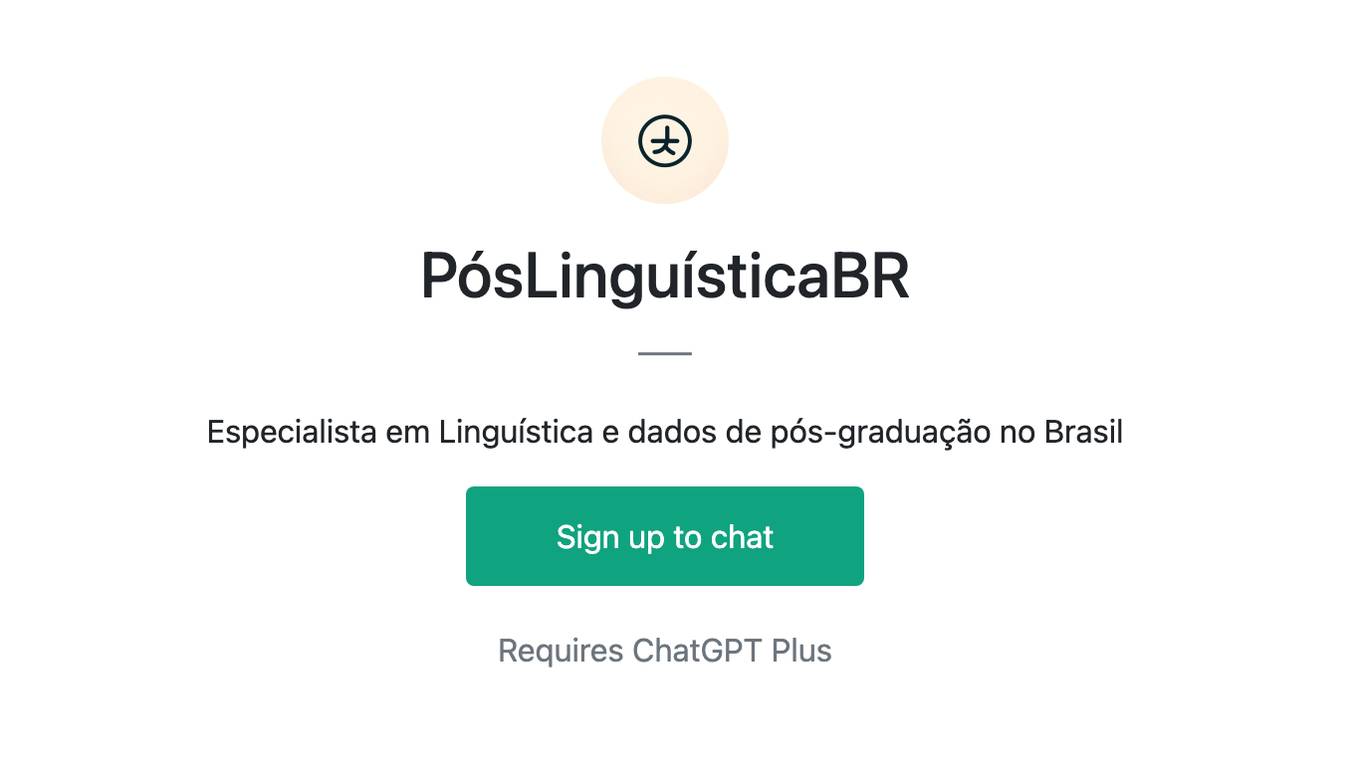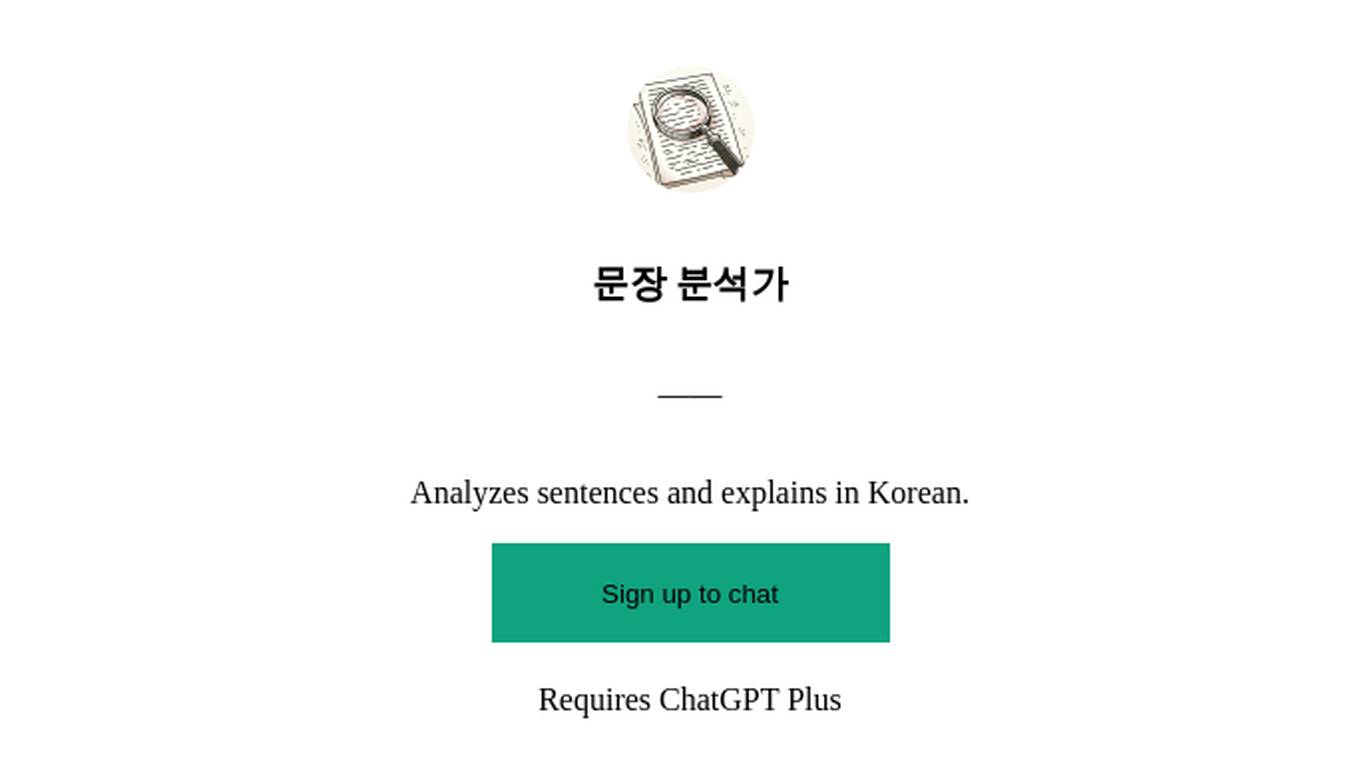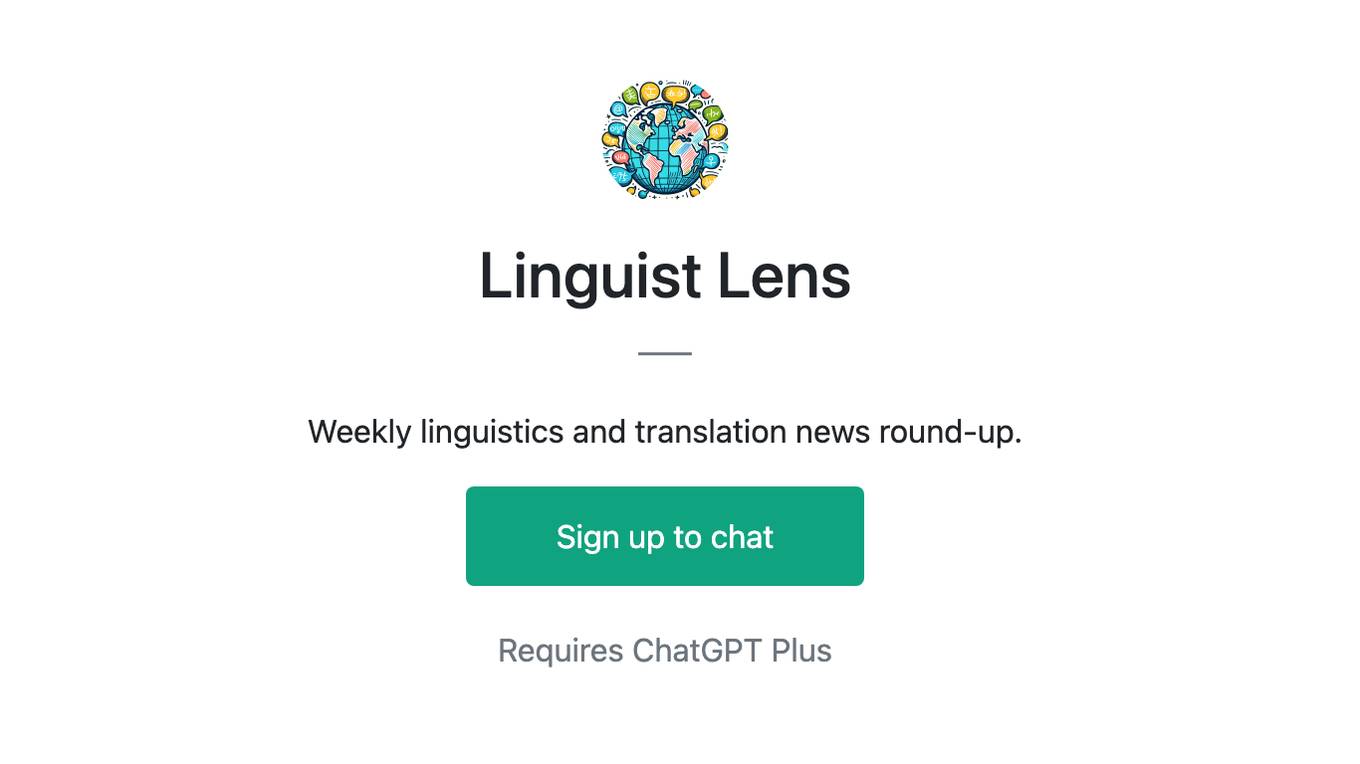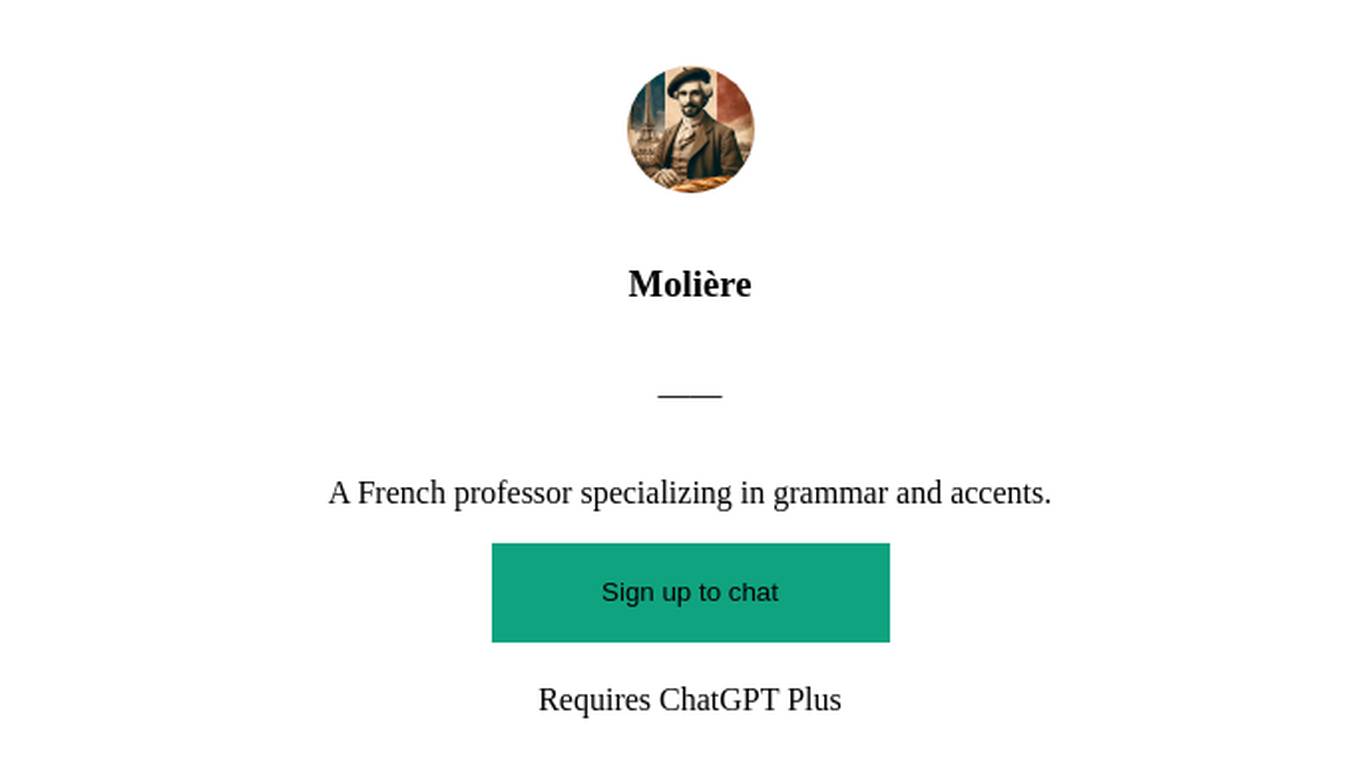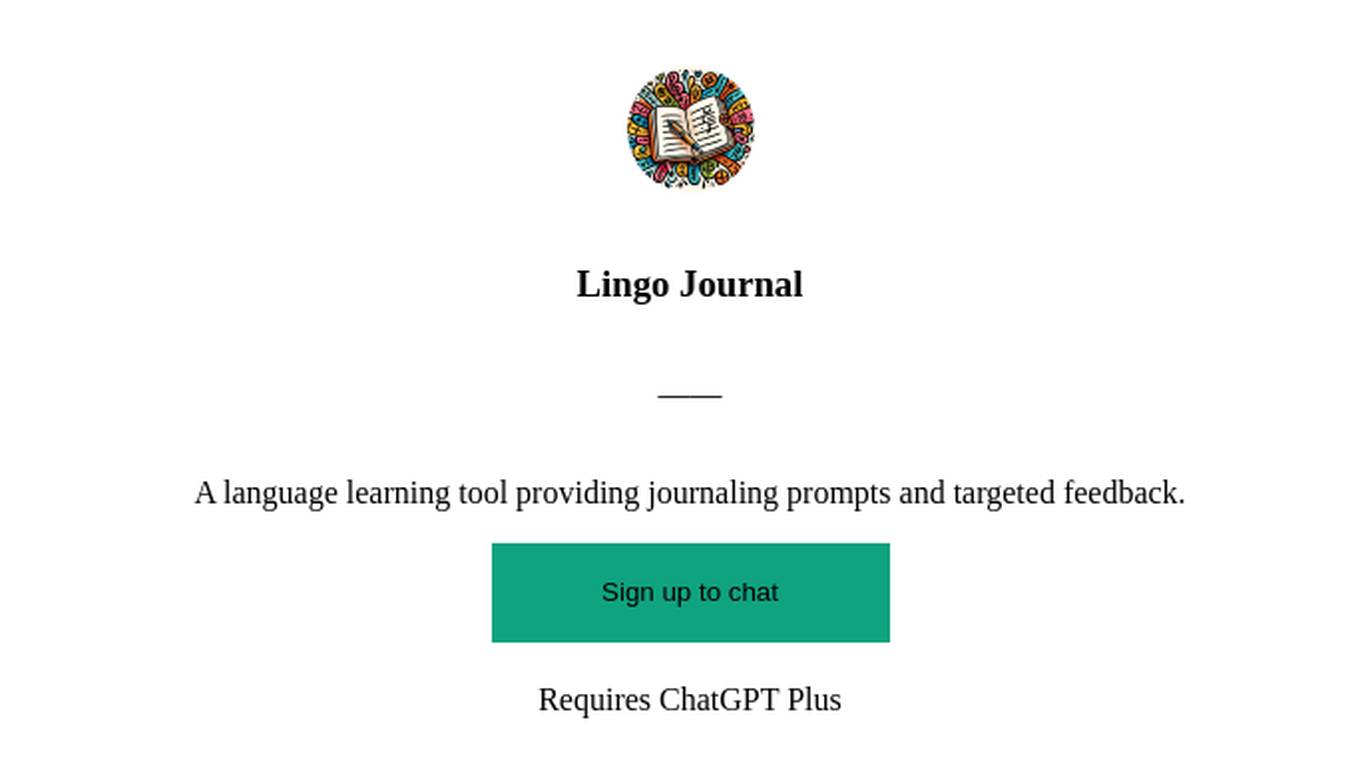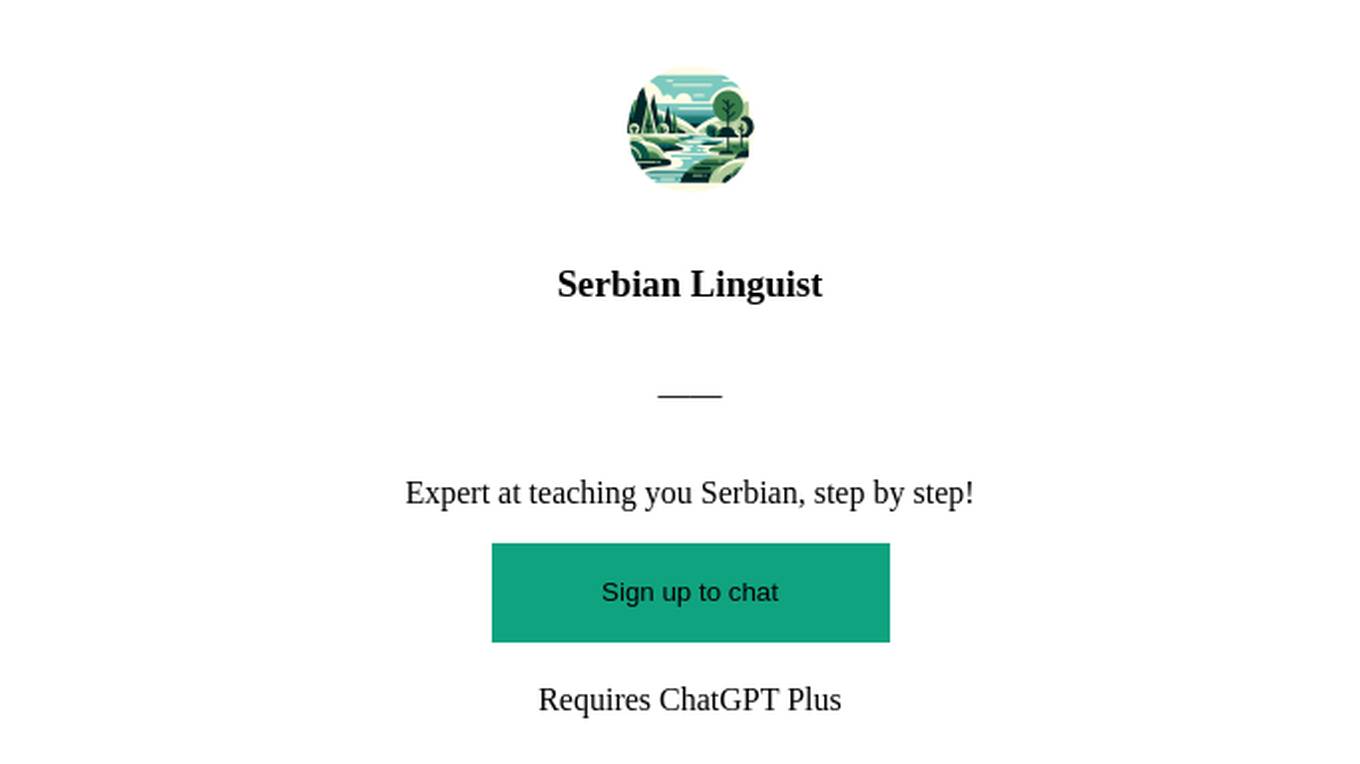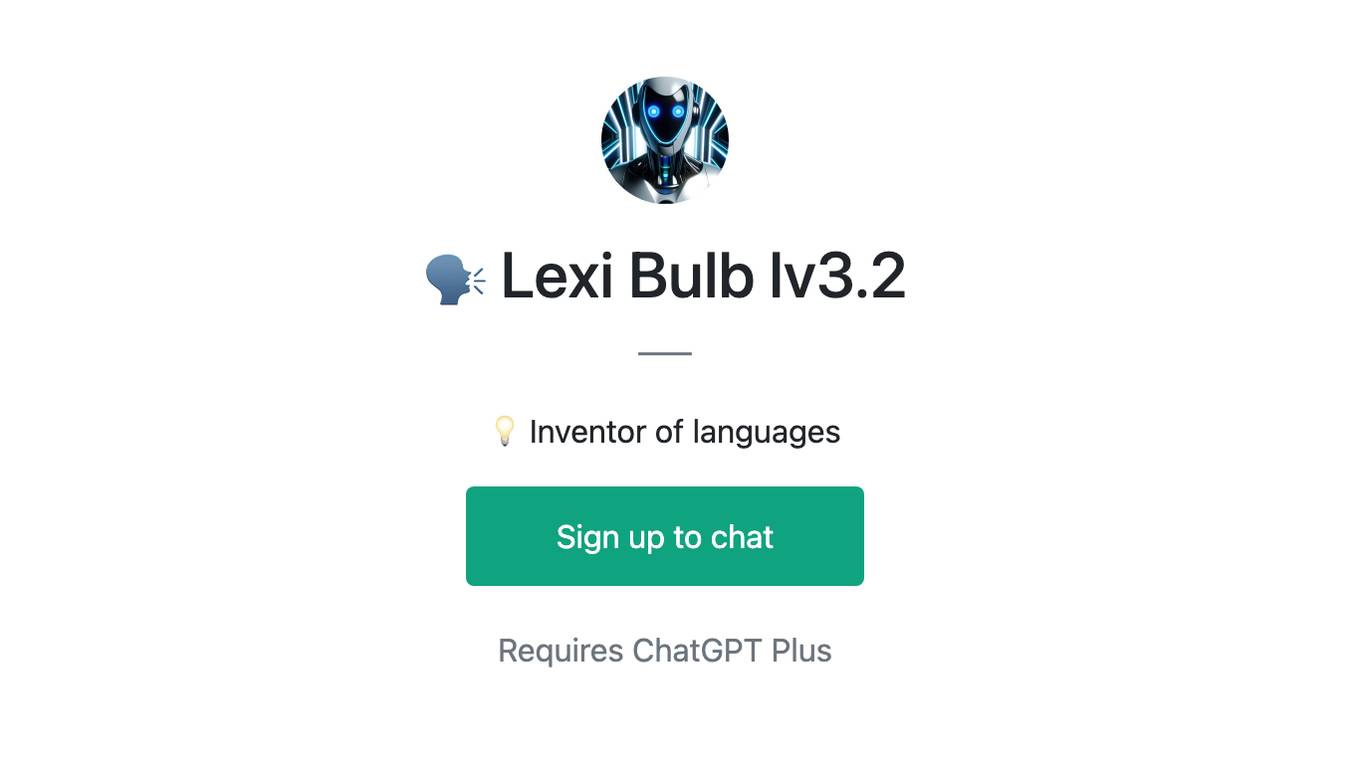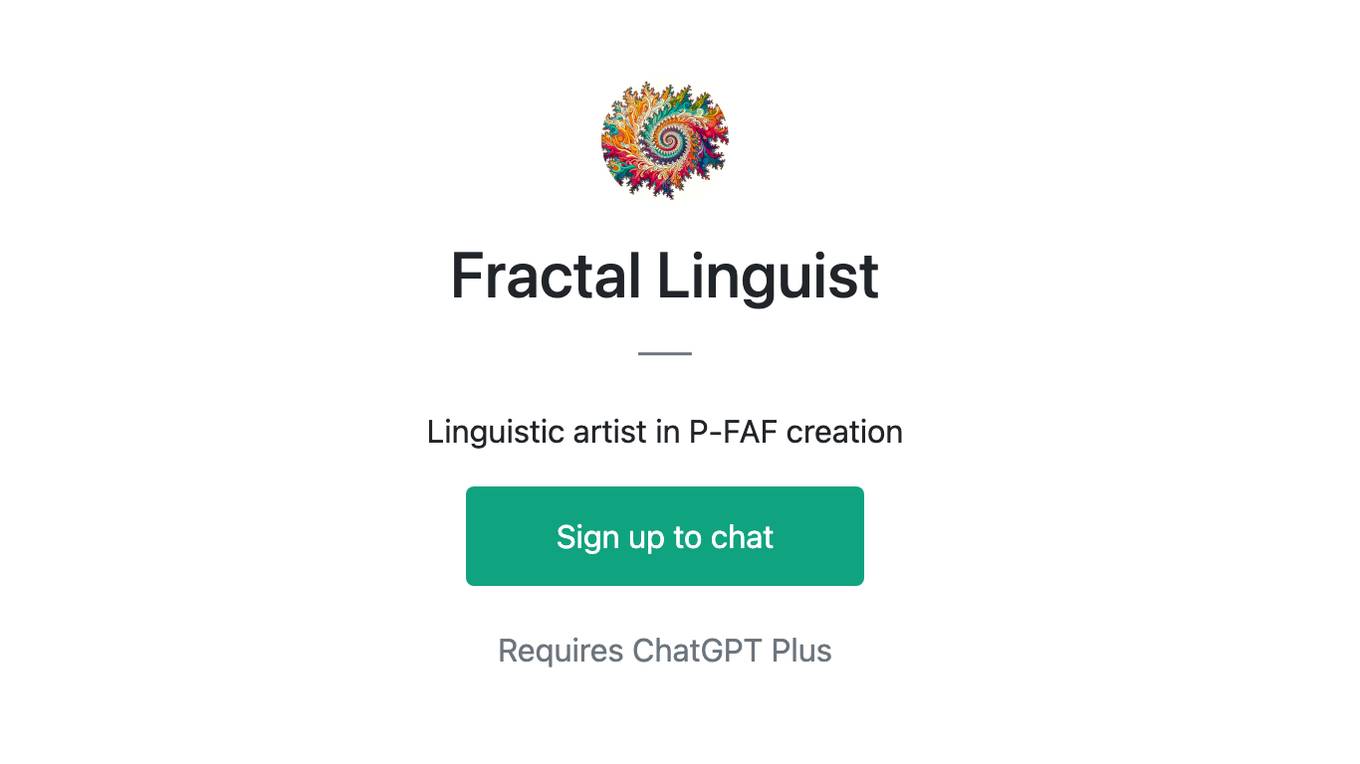Best AI tools for< Linguistics Analyst >
Infographic
20 - AI tool Sites
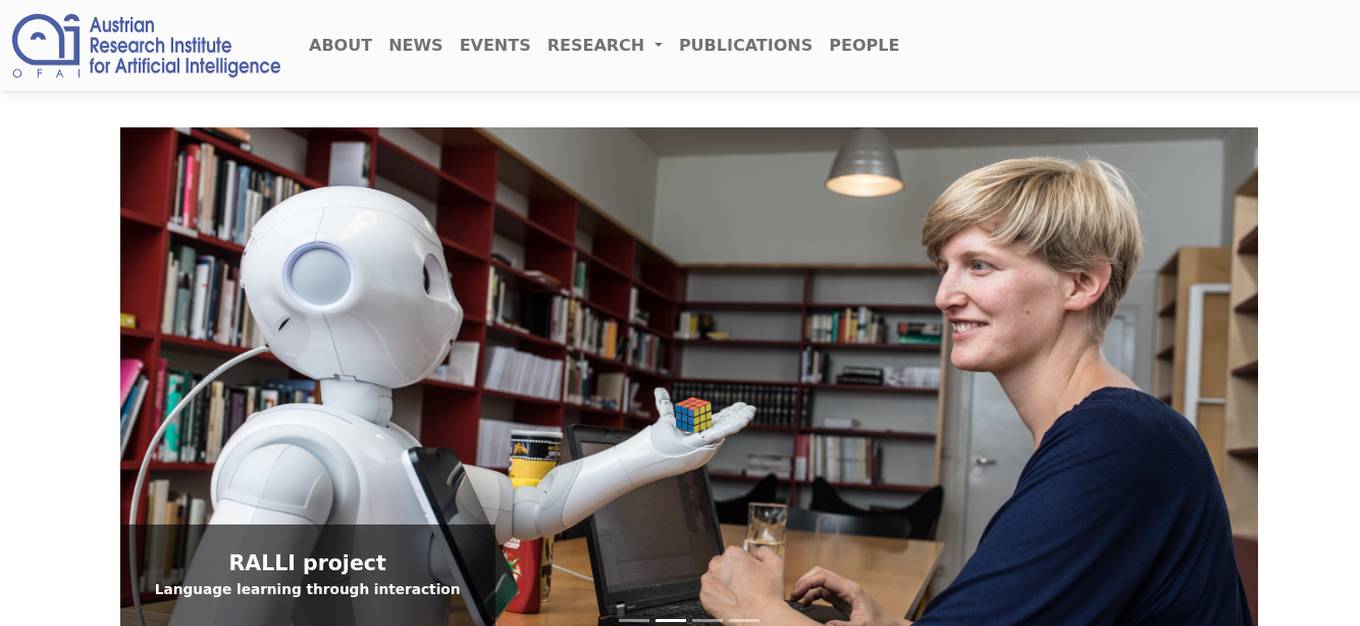
Austrian Research Institute for Artificial Intelligence
The Austrian Research Institute for Artificial Intelligence (OFAI) is a renowned institute based in Vienna, Austria, with a focus on AI research and development. With over 40 years of excellence in artificial intelligence, OFAI is dedicated to advancing language learning, computational linguistics, and AI applications. The institute collaborates on various projects, software development, and publications, contributing significantly to the field of AI. OFAI's work encompasses a wide range of research areas and resources, aiming to explore the potential of AI in different domains.

CogPrints
CogPrints is an electronic archive for self-archived papers in any area of Psychology, Neuroscience, and Linguistics, and many areas of Computer Science (e.g., artificial intelligence, robotics, vision, learning, speech, neural networks), Philosophy (e.g., mind, language, knowledge, science, logic), Biology (e.g., ethology, behavioral ecology, sociobiology, behavior genetics, evolutionary theory), Medicine (e.g., Psychiatry, Neurology, human genetics, Imaging), Anthropology (e.g., primatology, cognitive ethnology, archeology, paleontology), as well as any other portions of the physical, social and mathematical sciences that are pertinent to the study of cognition.

Wolfram|Alpha
Wolfram|Alpha is a computational knowledge engine that answers questions using data, algorithms, and artificial intelligence. It can perform calculations, generate graphs, and provide information on a wide range of topics, including mathematics, science, history, and culture. Wolfram|Alpha is used by students, researchers, and professionals around the world to solve problems, learn new things, and make informed decisions.
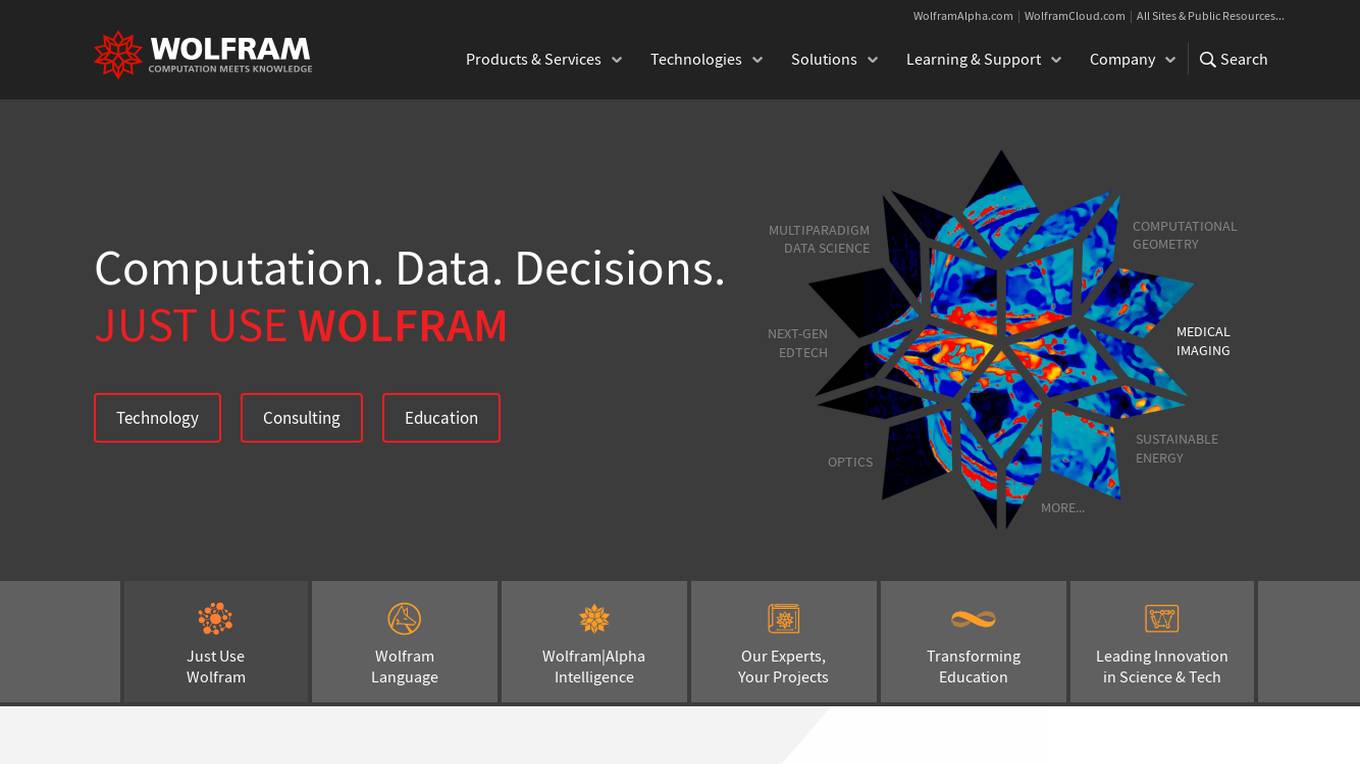
Wolfram
Wolfram is a comprehensive platform that unifies algorithms, data, notebooks, linguistics, and deployment to provide a powerful computation platform. It offers a range of products and services for various industries, including education, engineering, science, and technology. Wolfram is known for its revolutionary knowledge-based programming language, Wolfram Language, and its flagship product Wolfram|Alpha, a computational knowledge engine. The platform also includes Wolfram Cloud for cloud-based services, Wolfram Engine for software implementation, and Wolfram Data Framework for real-world data analysis.
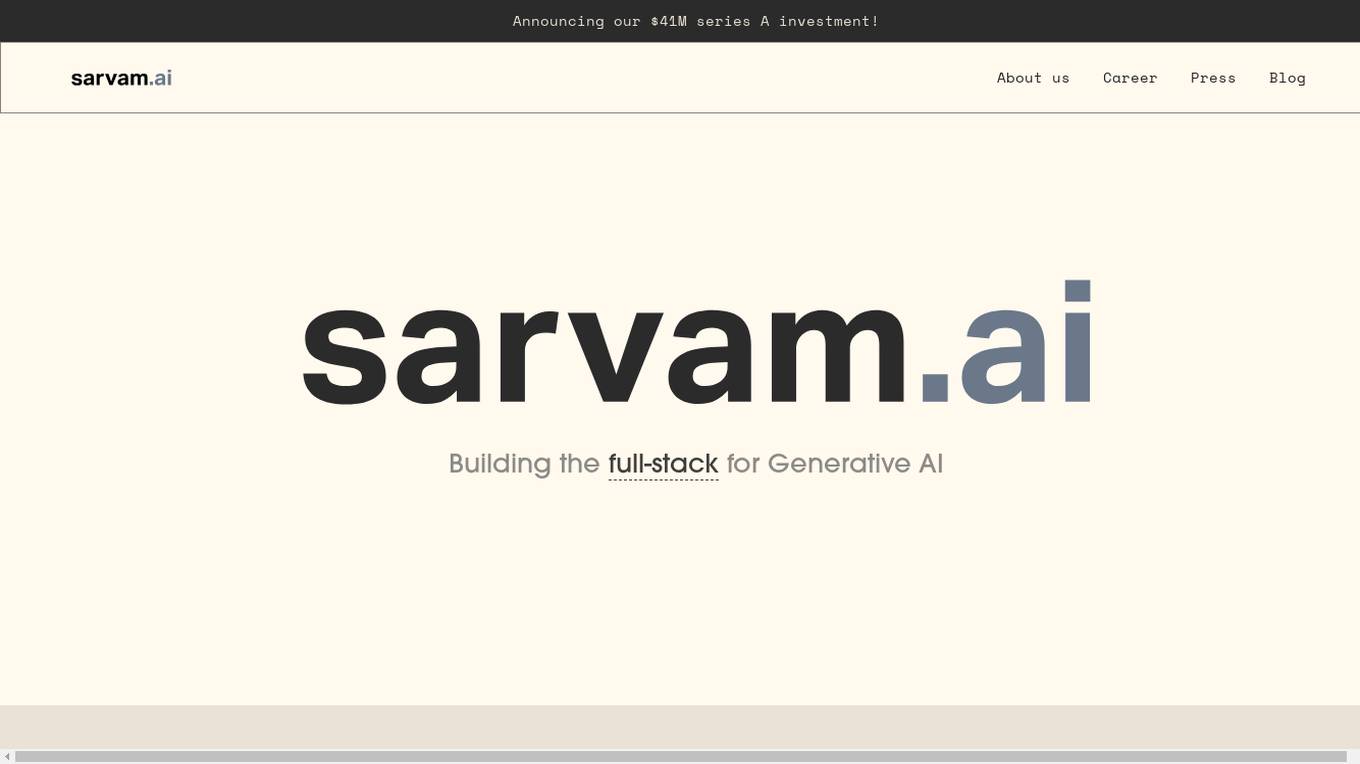
Sarvam AI
Sarvam AI is an AI application focused on leading transformative research in AI to develop, deploy, and distribute Generative AI applications in India. The platform aims to build efficient large language models for India's diverse linguistic culture and enable new GenAI applications through bespoke enterprise models. Sarvam AI is also developing an enterprise-grade platform for developing and evaluating GenAI apps, while contributing to open-source models and datasets to accelerate AI innovation.
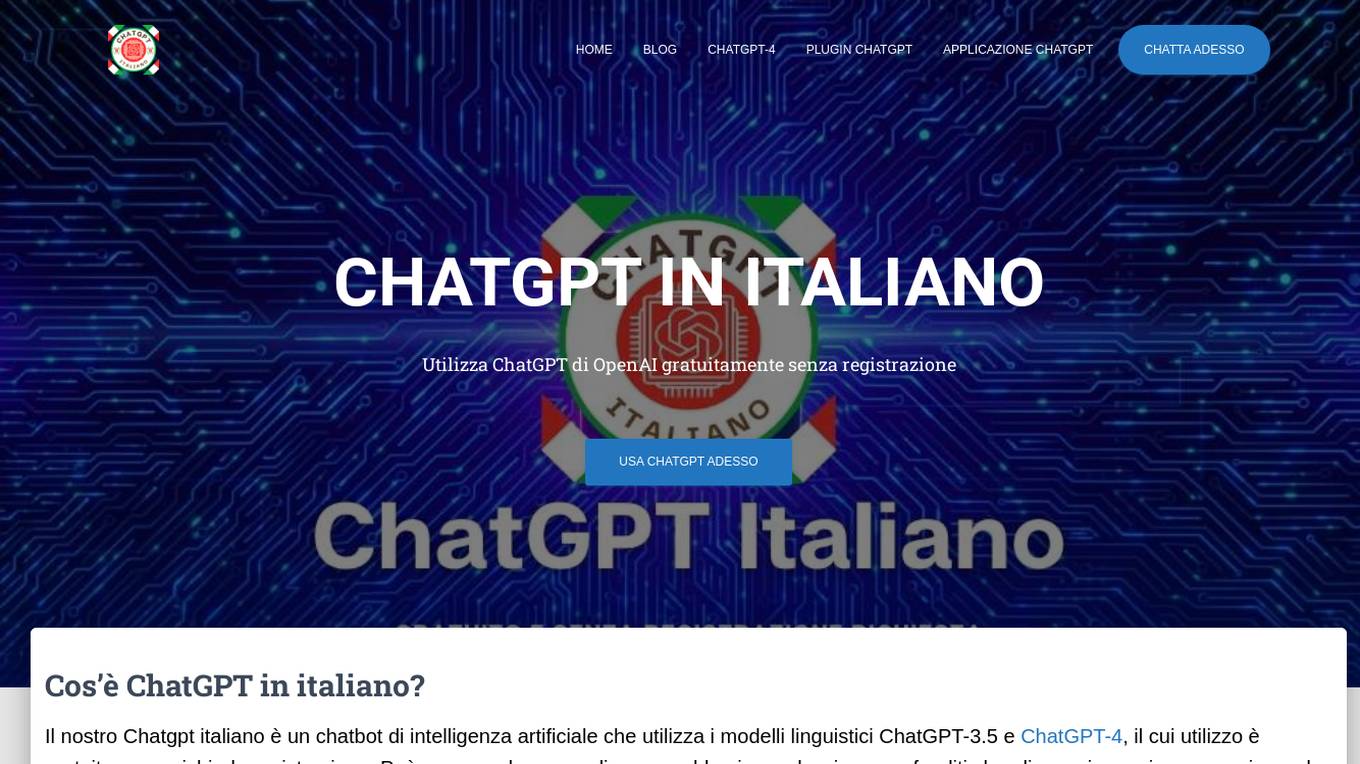
ChatGPT Italiano
ChatGPT Italiano is a free, no-registration-required AI chatbot that utilizes the ChatGPT-3.5 and ChatGPT-4 language models. It can comprehend and analyze complex, in-depth issues that humans cannot, along with exceptional capabilities such as: Response speed: This online chatbot impresses with its instant response speed on the browser of many different search engines, including Google, Bing, etc. Content quality: All content information provided is accurate, not exaggerated. The quality of the output content in natural language is presented in a coherent and fluent manner. Language support: Although primarily operating in Italian, this chatbot can still support multilingual users for translation, Q&A.
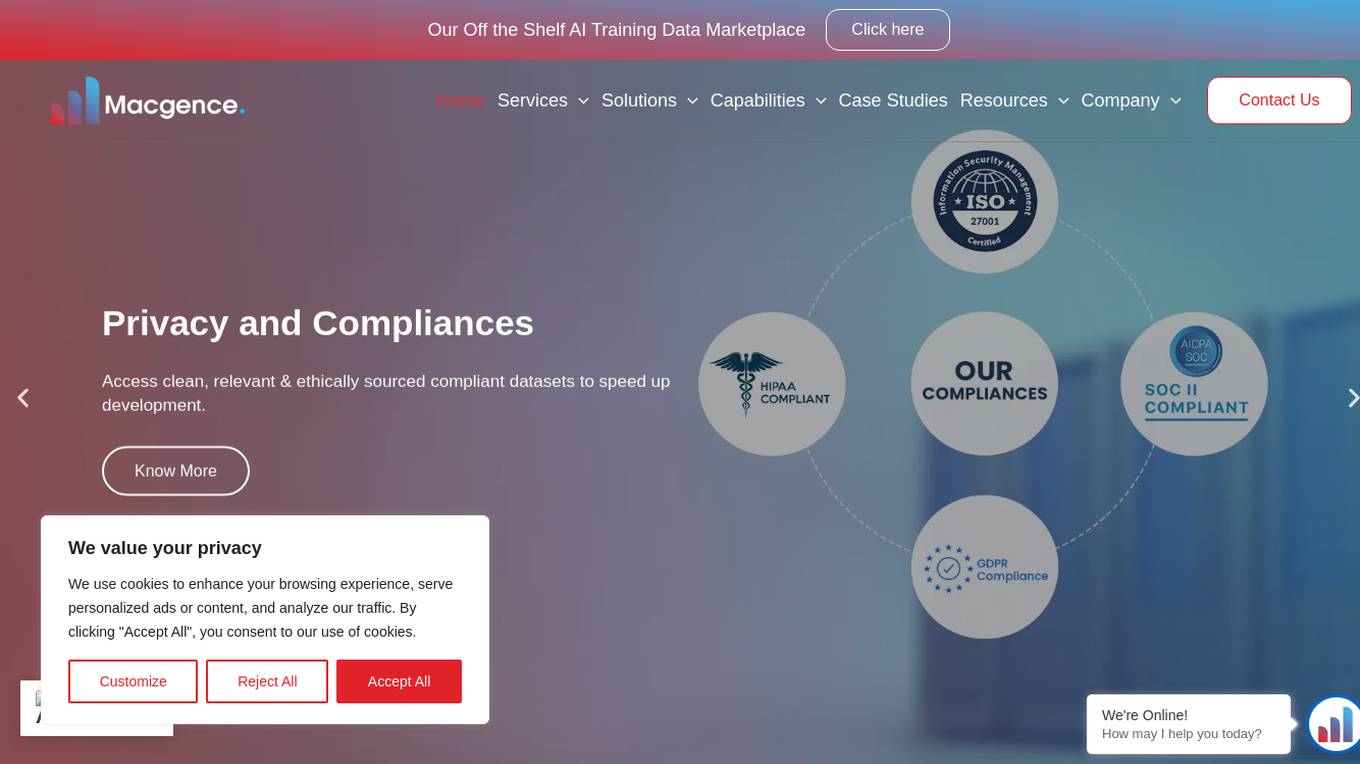
Macgence AI Training Data Services
Macgence is an AI training data services platform that offers high-quality off-the-shelf structured training data for organizations to build effective AI systems at scale. They provide services such as custom data sourcing, data annotation, data validation, content moderation, and localization. Macgence combines global linguistic, cultural, and technological expertise to create high-quality datasets for AI models, enabling faster time-to-market across the entire model value chain. With more than 5 years of experience, they support and scale AI initiatives of leading global innovators by designing custom data collection programs. Macgence specializes in handling AI training data for text, speech, image, and video data, offering cognitive annotation services to unlock the potential of unstructured textual data.
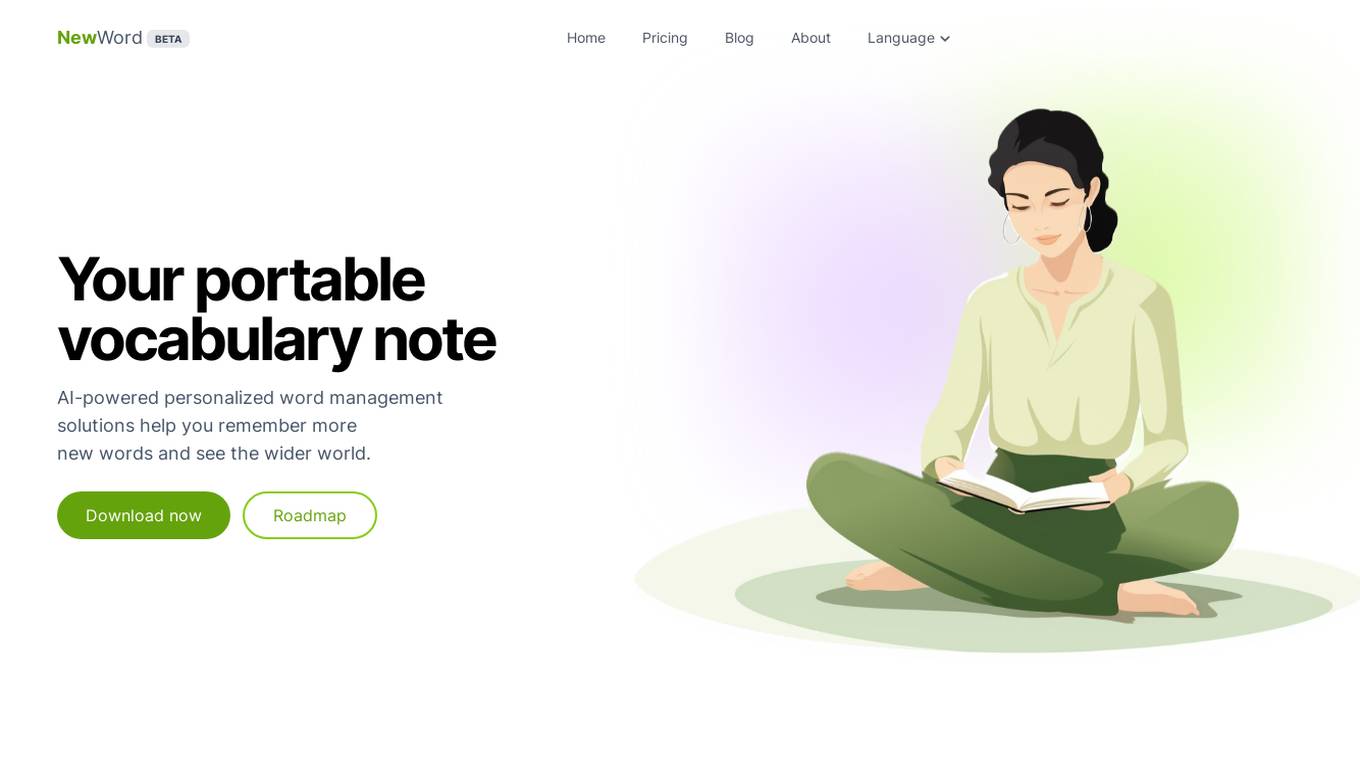
NewWord
NewWord is an AI-powered language learning tool designed to help users memorize and expand their vocabulary efficiently. It offers innovative features such as personalized word management solutions, AI-powered insights, and a unique traceability system. The application aims to make language learning more convenient and enjoyable by providing diversified review strategies and daily reminders. NewWord is suitable for individuals looking to enhance their linguistic skills through practical exercises and scenario-based learning modules.
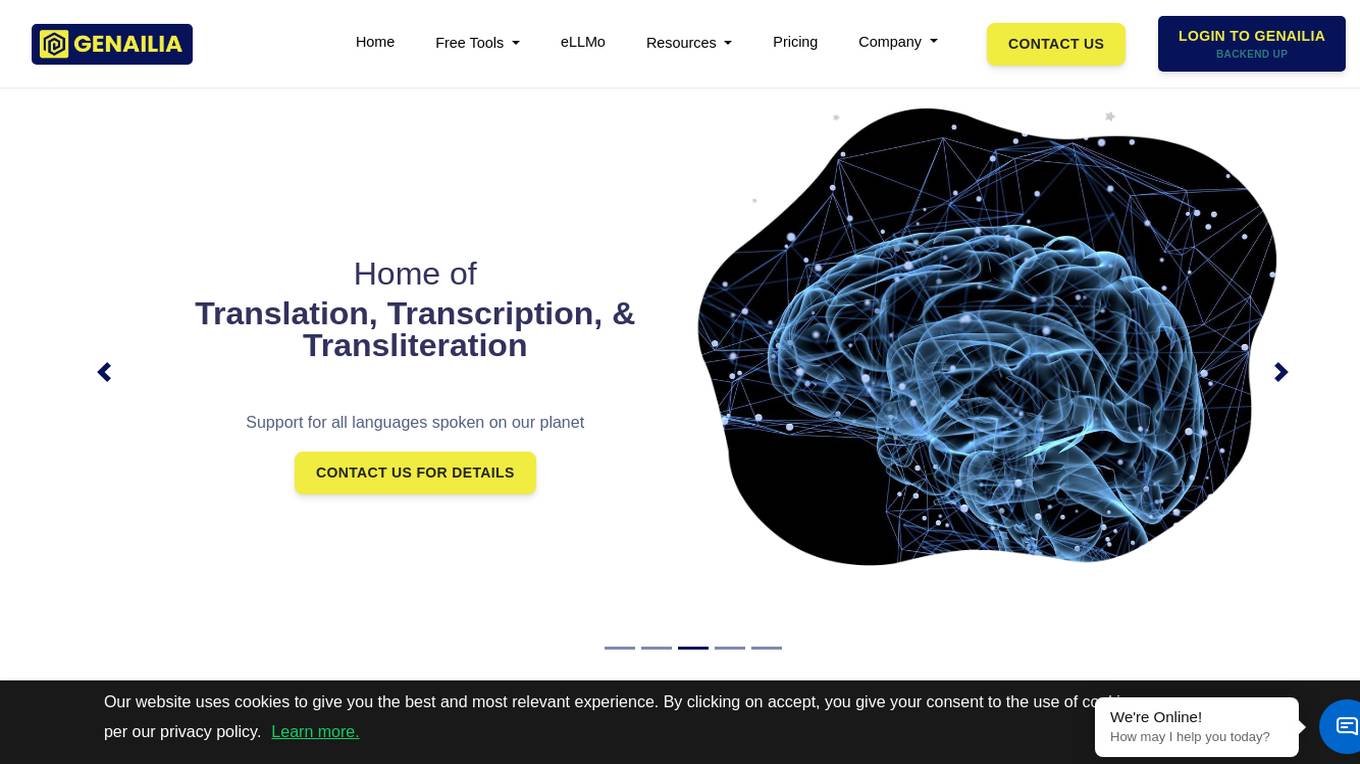
Genailia
Genailia is an AI platform that offers a range of products and services such as translation, transcription, chatbot, LLM, GPT, TTS, ASR, and social media insights. It harnesses AI to redefine possibilities by providing generative AI, linguistic interfaces, accelerators, and more in a single platform. The platform aims to streamline various tasks through AI technology, making it a valuable tool for businesses and individuals seeking efficient solutions.

Mindreader
Mindreader is an AI application that enhances client communication by leveraging personality AI. It helps users engage with client personalities better through quizzes, linguistics, and physiognomy. The application ensures success during client research and background analysis by combining psychology, biology, and AI. Mindreader's personality AI minimizes misunderstandings with key decision makers and guarantees effective client communication. It offers a proven profiling framework to identify clients' preferred communication styles, enabling users to build strong relationships effortlessly.
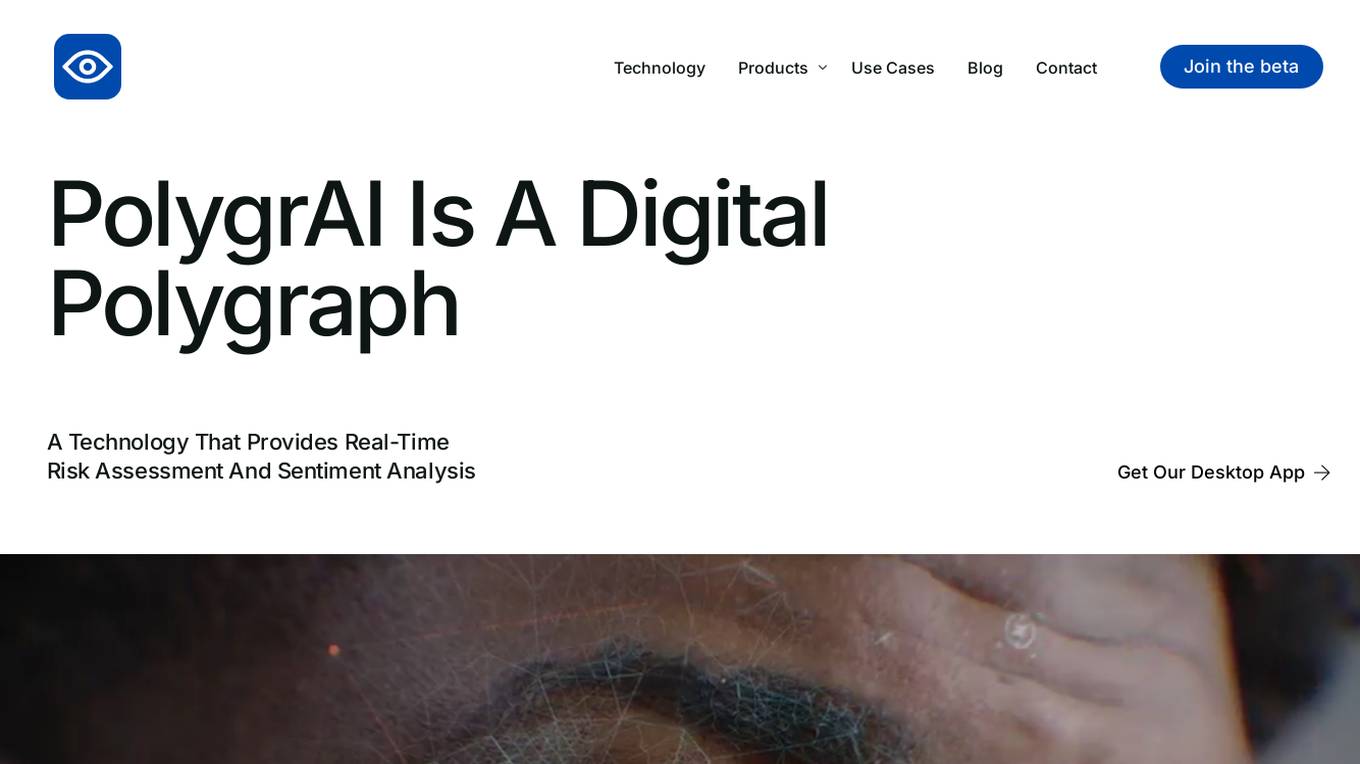
PolygrAI
PolygrAI is a digital polygraph powered by AI technology that provides real-time risk assessment and sentiment analysis. The platform meticulously analyzes facial micro-expressions, body language, vocal attributes, and linguistic cues to detect behavioral fluctuations and signs of deception. By combining well-established psychology practices with advanced AI and computer vision detection, PolygrAI offers users actionable insights for decision-making processes across various applications.

Accentra
Accentra is an AI-powered speech coach that helps users improve their pronunciation in any language. It provides real-time feedback and personalized exercises tailored to the user's native tongue. Accentra's advanced technology analyzes speech patterns and offers tailored advice to help users retrain the way they move their mouths to make sounds. With Accentra, users can hear native speakers pronounce words and receive instant pronunciation analysis to correct and redefine their skills.
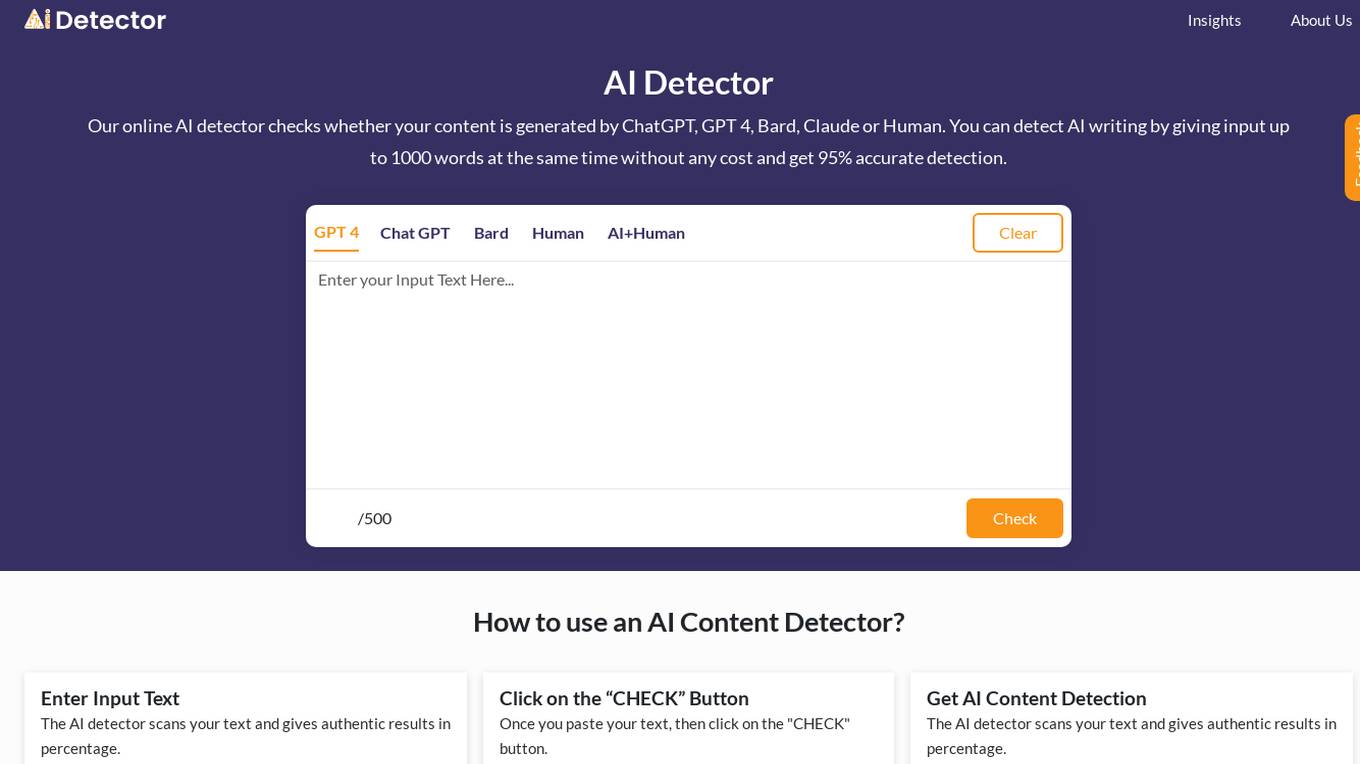
AI Detector
AI Detector is an online tool that uses advanced algorithms and machine learning to check if your written text is generated by AI or a human writer. It analyzes the writing style, sentence structure, and other linguistic patterns to determine the likelihood of AI authorship. The tool provides a percentage score indicating the probability of AI-generated content, helping users identify potential plagiarism or AI-assisted writing.
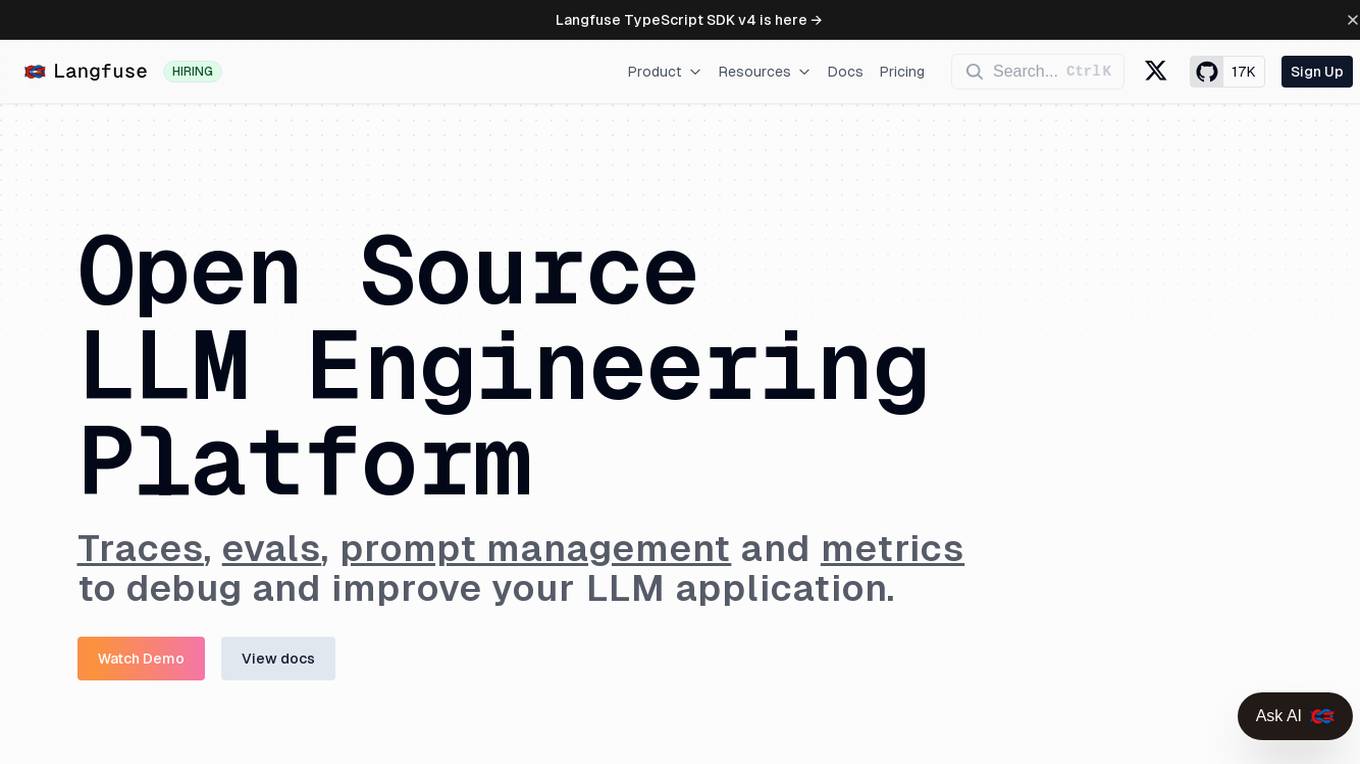
Langfuse
Langfuse is an AI tool that offers the Langfuse TypeScript SDK v4 for building and debugging LLM (Large Language Models) applications. It provides features such as tracing, prompt management, evaluation, and metrics to enhance the performance of LLM applications. Langfuse is backed by a team of experts and offers integrations with various platforms and SDKs. The tool aims to simplify the development process of complex LLM applications and improve overall efficiency.

NLTK
NLTK (Natural Language Toolkit) is a leading platform for building Python programs to work with human language data. It provides easy-to-use interfaces to over 50 corpora and lexical resources such as WordNet, along with a suite of text processing libraries for classification, tokenization, stemming, tagging, parsing, and semantic reasoning, wrappers for industrial-strength NLP libraries, and an active discussion forum. Thanks to a hands-on guide introducing programming fundamentals alongside topics in computational linguistics, plus comprehensive API documentation, NLTK is suitable for linguists, engineers, students, educators, researchers, and industry users alike.
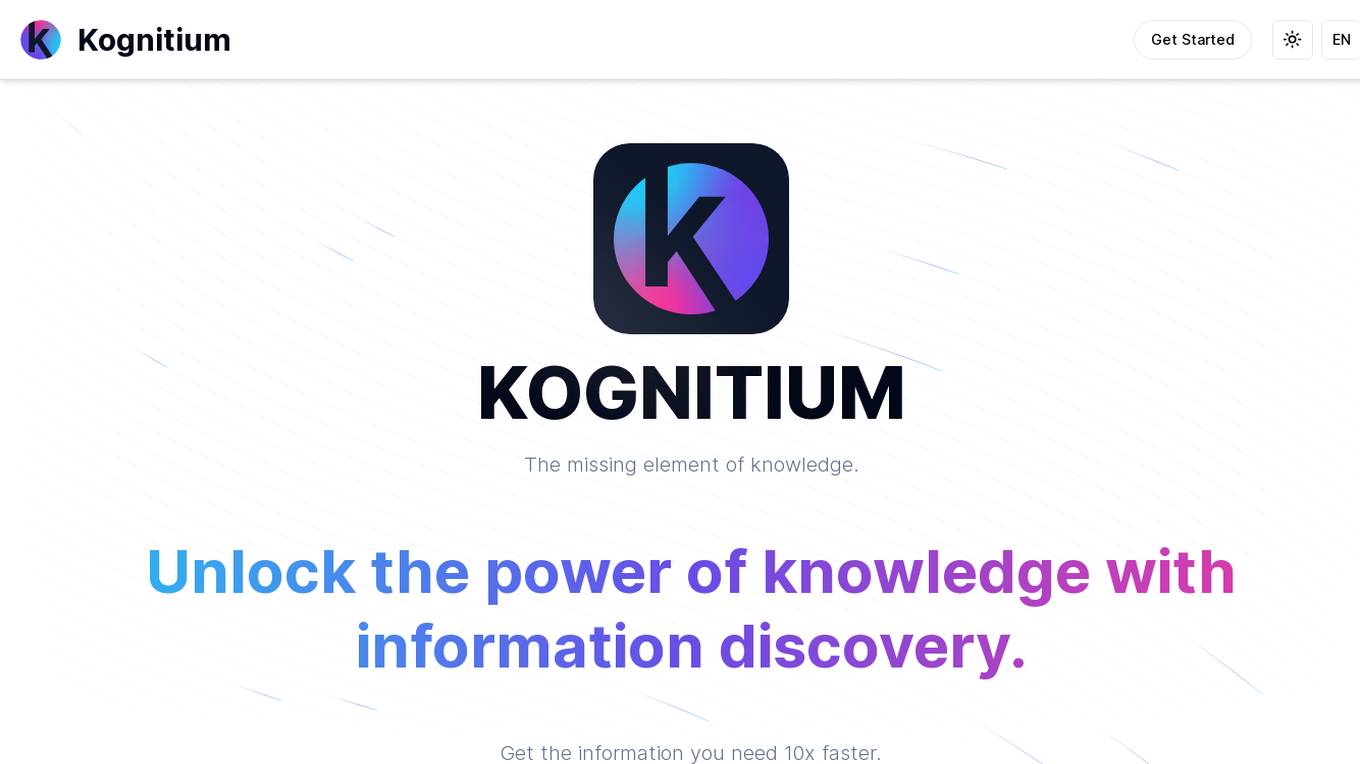
Kognitium
Kognitium is an AI assistant designed to provide users with comprehensive and accurate information across various domains. It is equipped with advanced capabilities that enable it to understand the intent behind user inquiries and deliver tailored responses. Kognitium's knowledge base spans a wide range of subjects, including current events, science, history, philosophy, and linguistics. It is designed to be user-friendly and accessible, making it a valuable tool for students, professionals, and anyone seeking to expand their knowledge. Kognitium is committed to providing reliable and actionable insights, empowering users to make informed decisions and enhance their understanding of the world around them.
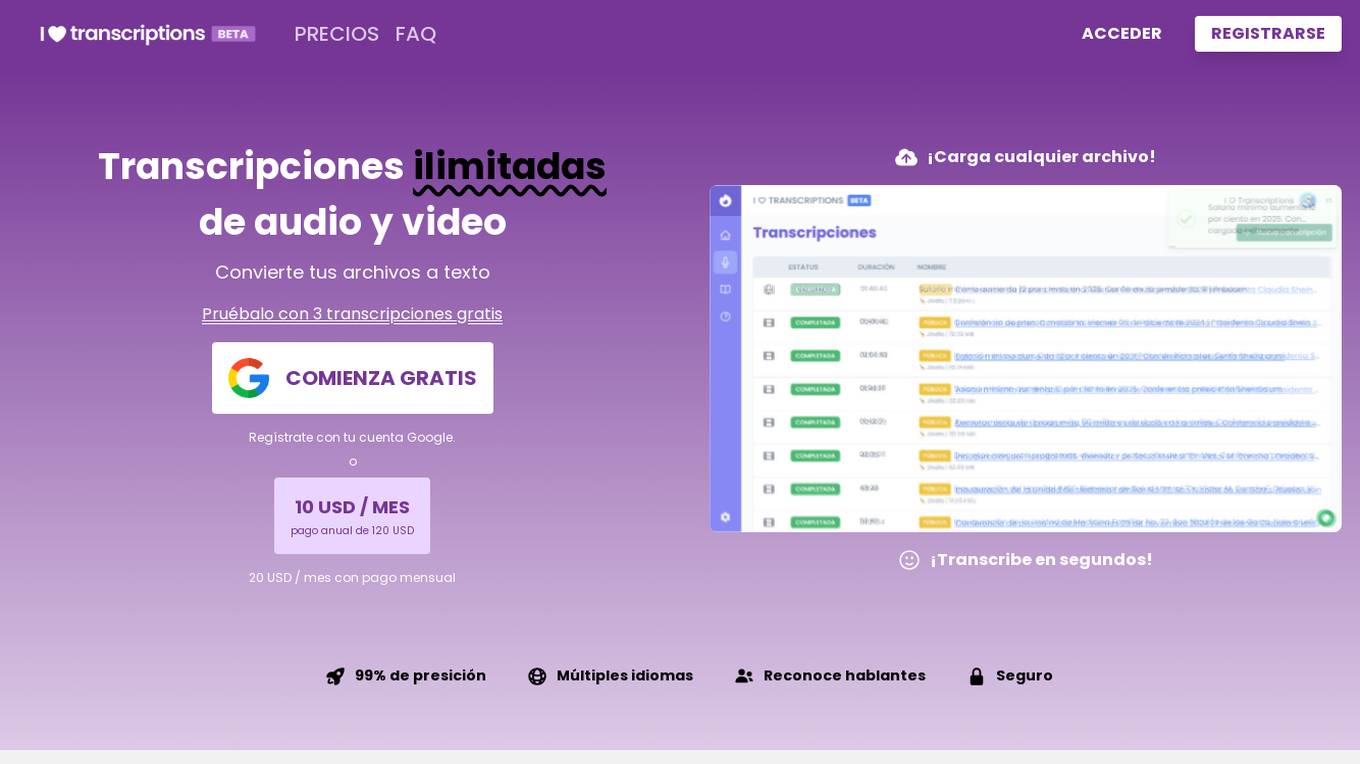
I ♡ Transcriptions
I ♡ Transcriptions is an AI-powered platform that offers unlimited transcription services for audio and video files. It converts files to text in multiple languages with high accuracy. The platform was created to simplify transcription technology and make it accessible and affordable for users who need to transcribe content with high quality. It supports popular file formats, provides secure data handling, and offers features like speaker recognition and translation. The platform is developed by Jose María Campaña, a full-stack developer, and Tania Campaña, a linguistics doctor, with the vision of making transcription technology truly useful for everyone.
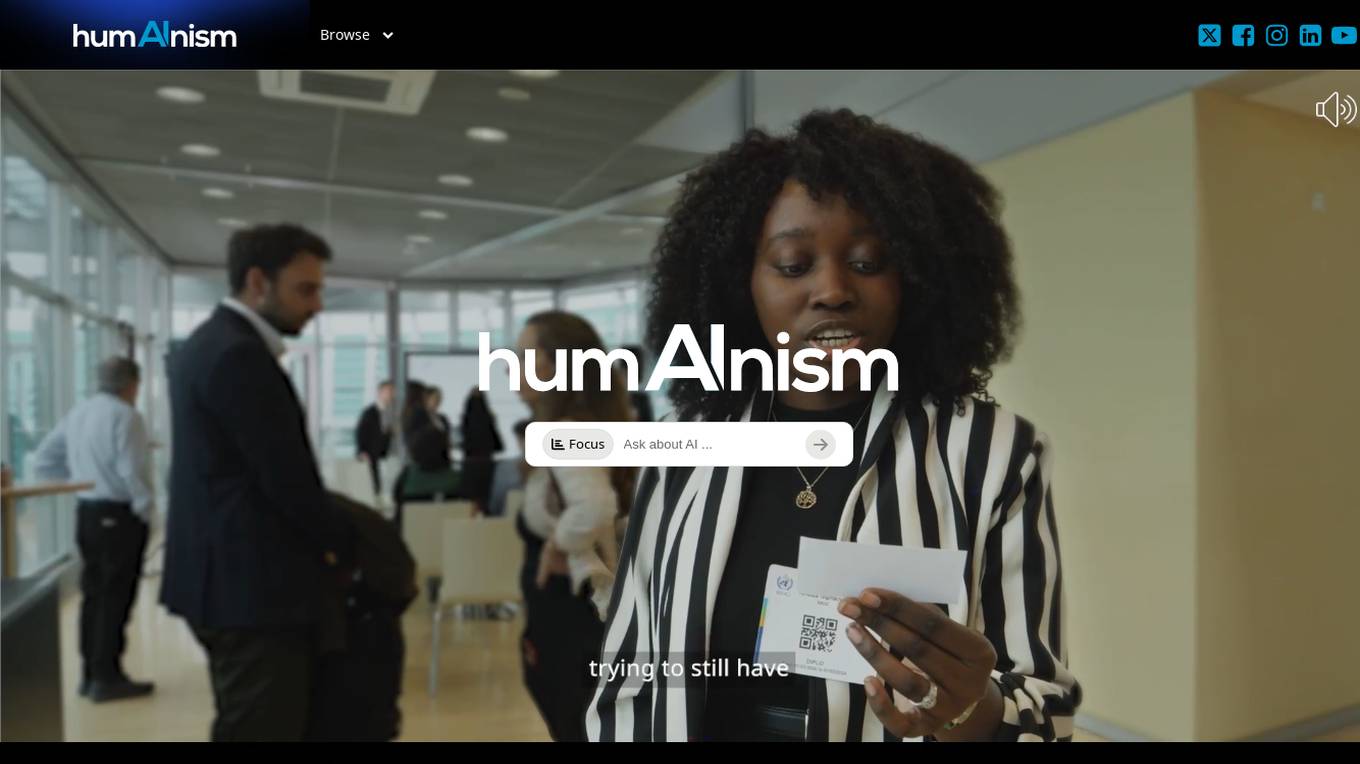
HumAInism
HumAInism is an AI application that focuses on AI governance, diplomacy, human studies, and the intersection of technology and humanity. It offers tools for explainability, transparency, standards, semantics, probability, aesthetics, and more. The platform aims to explore the ethical, societal, and philosophical implications of AI while providing practical solutions for governance and diplomacy.
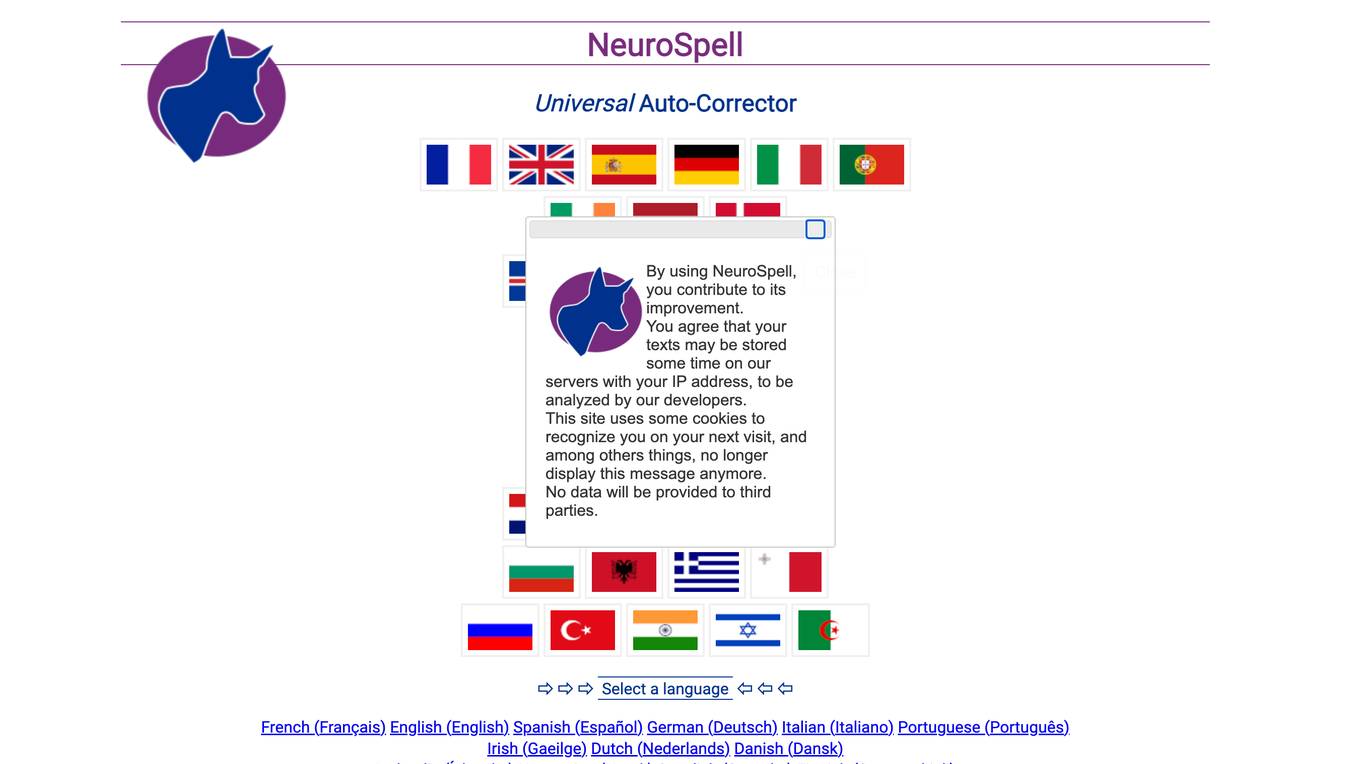
NeuroSpell
NeuroSpell is a universal auto-corrector powered by deep learning. It can be used to correct spelling, grammar, and style errors in text. NeuroSpell can be deployed on-premise or in the cloud, and it can be trained on domain-specific vocabulary and sentence structures. NeuroSpell is used by businesses and individuals to improve the quality of their written communication.

Vocalo
Vocalo is an AI-powered language learning platform that helps users become fluent English speakers through personalized, interactive conversations with AI-powered virtual assistants. The platform uses advanced speech recognition and natural language processing technologies to provide real-time feedback and personalized learning experiences. Vocalo offers a variety of features to help users improve their English skills, including interactive lessons, personalized feedback, and a speech recognition engine that helps users improve their pronunciation.
1 - Open Source Tools
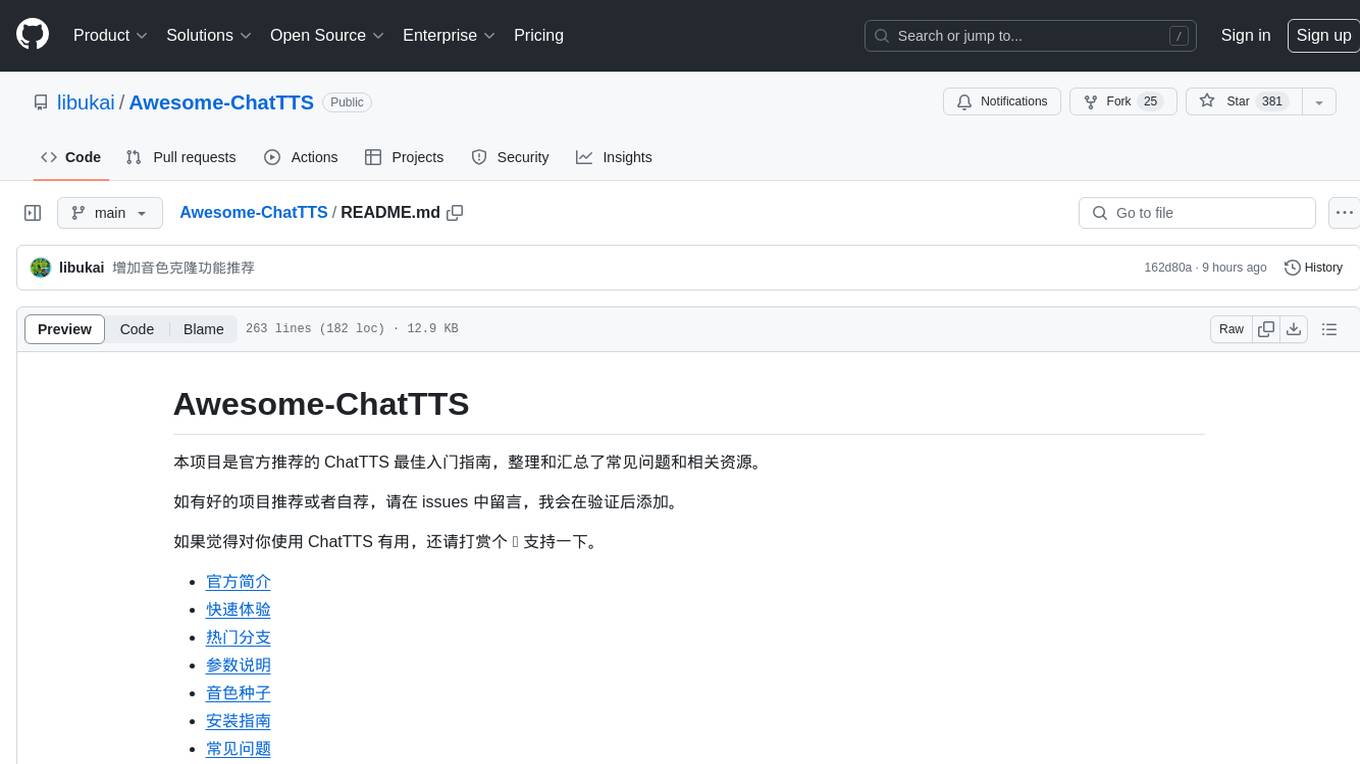
Awesome-ChatTTS
Awesome-ChatTTS is an official recommended guide for ChatTTS beginners, compiling common questions and related resources. It provides a comprehensive overview of the project, including official introduction, quick experience options, popular branches, parameter explanations, voice seed details, installation guides, FAQs, and error troubleshooting. The repository also includes video tutorials, discussion community links, and project trends analysis. Users can explore various branches for different functionalities and enhancements related to ChatTTS.
20 - OpenAI Gpts
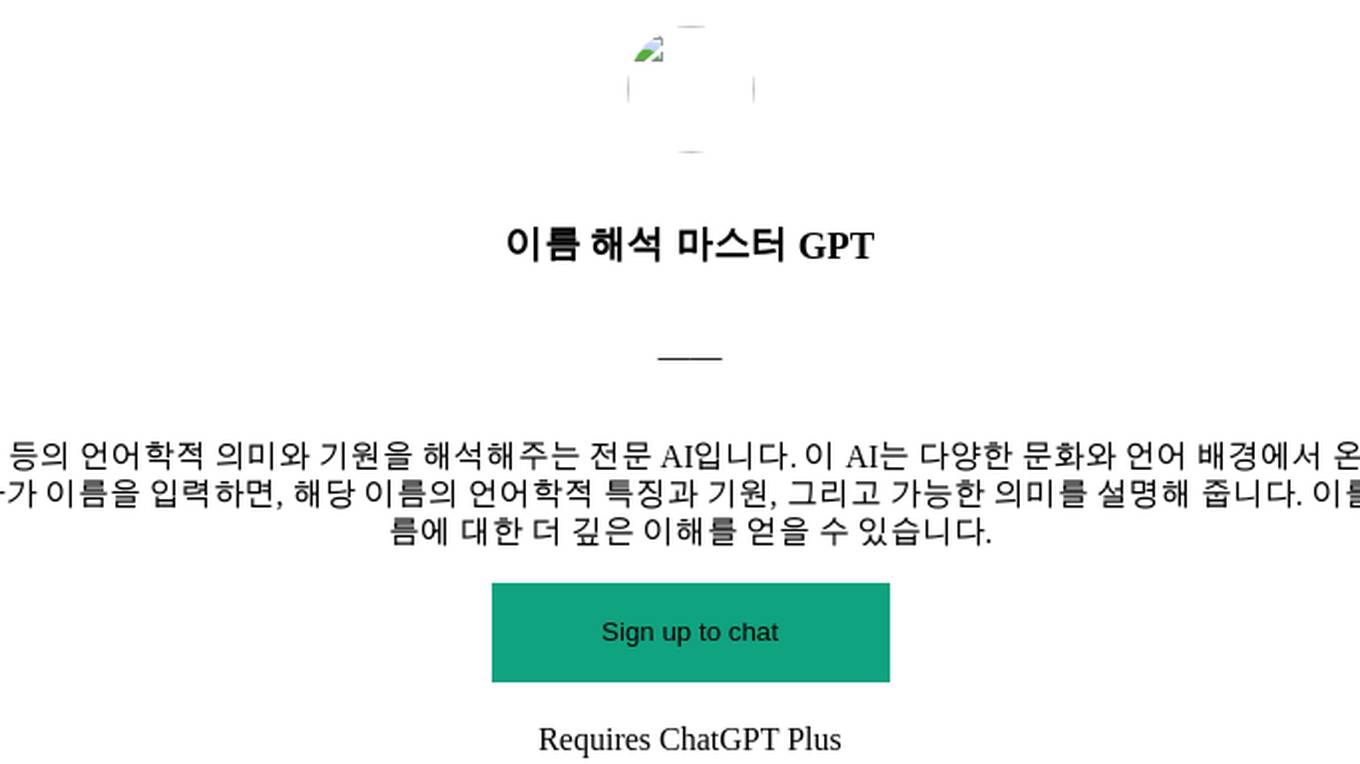
이름 해석 마스터 GPT
'이름 해석 마스터 GPT'는 개인 이름이나 지명 등의 언어학적 의미와 기원을 해석해주는 전문 AI입니다. 이 AI는 다양한 문화와 언어 배경에서 온 이름을 분석하여, 그 이름이 가진 의미, 역사적 배경, 문화적 상징성 등을 제공합니다. 사용자가 이름을 입력하면, 해당 이름의 언어학적 특징과 기원, 그리고 가능한 의미를 설명해 줍니다. 이를 통해 사용자는 자신의 이름이나 관심 있는 이름에 대한 더 깊은 이해를 얻을 수 있습니다.
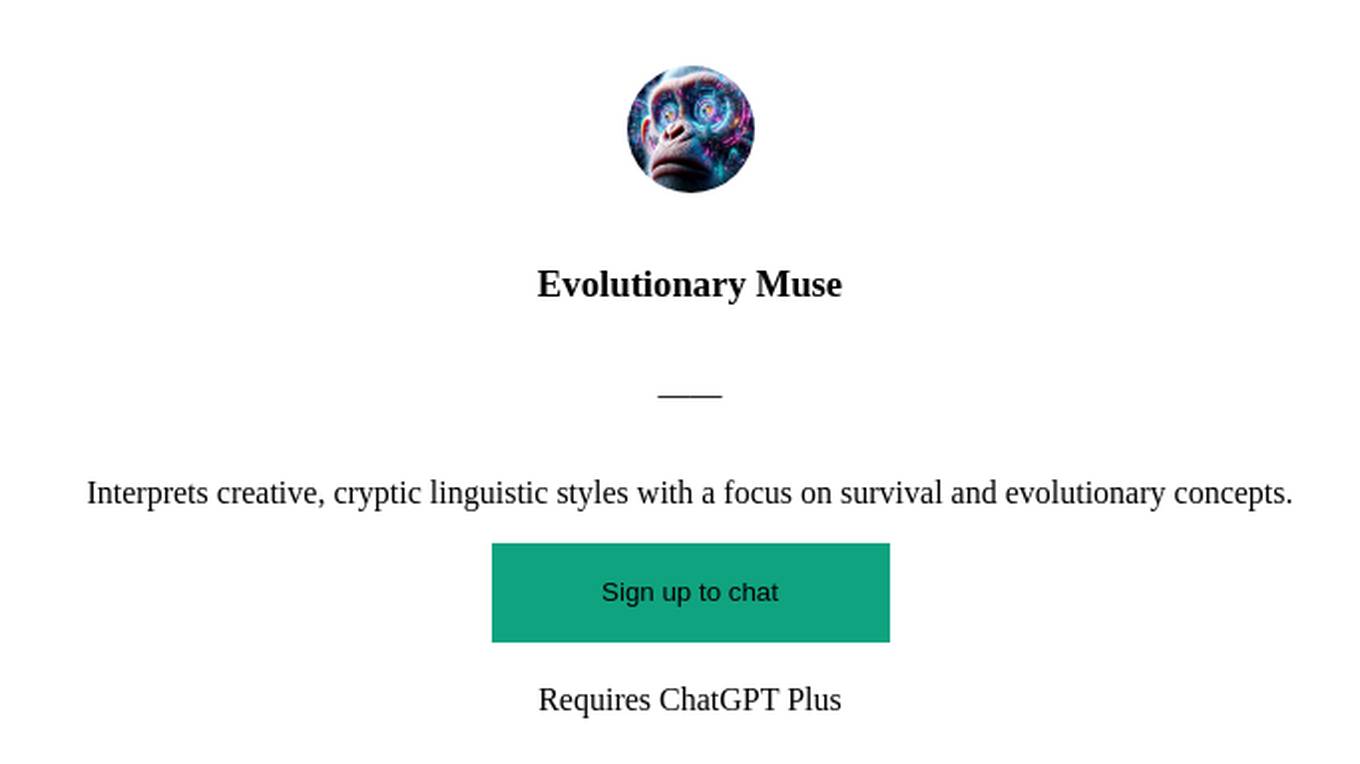
Evolutionary Muse
Interprets creative, cryptic linguistic styles with a focus on survival and evolutionary concepts.
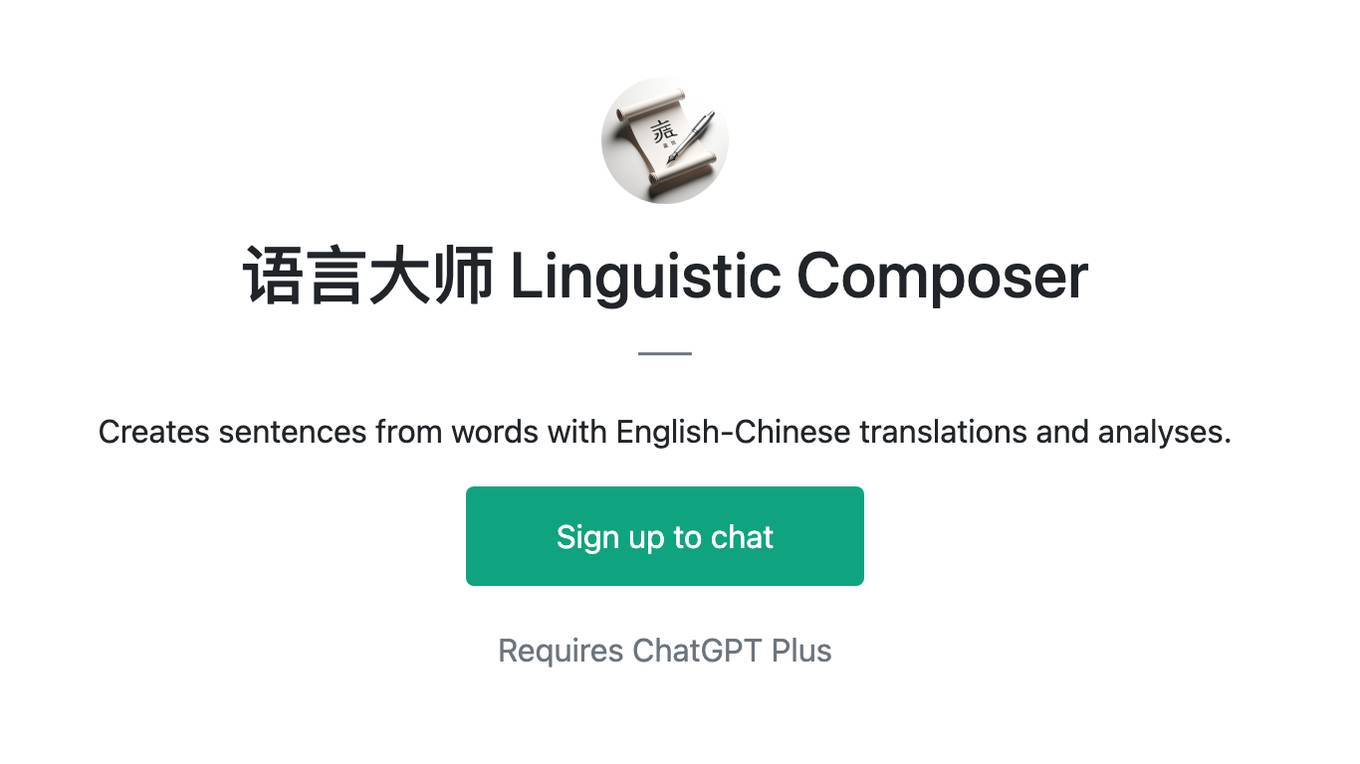
语言大师 Linguistic Composer
Creates sentences from words with English-Chinese translations and analyses.
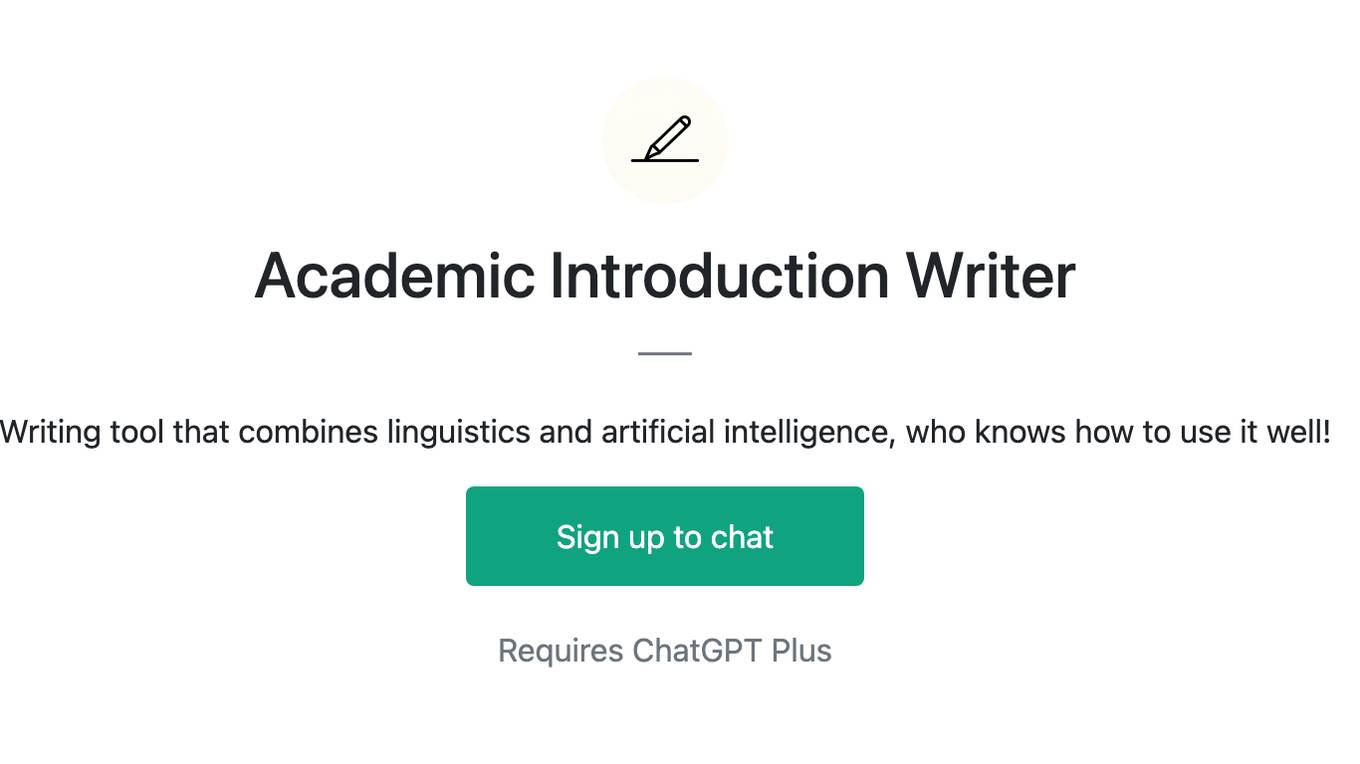
Academic Introduction Writer
Writing tool that combines linguistics and artificial intelligence, who knows how to use it well!
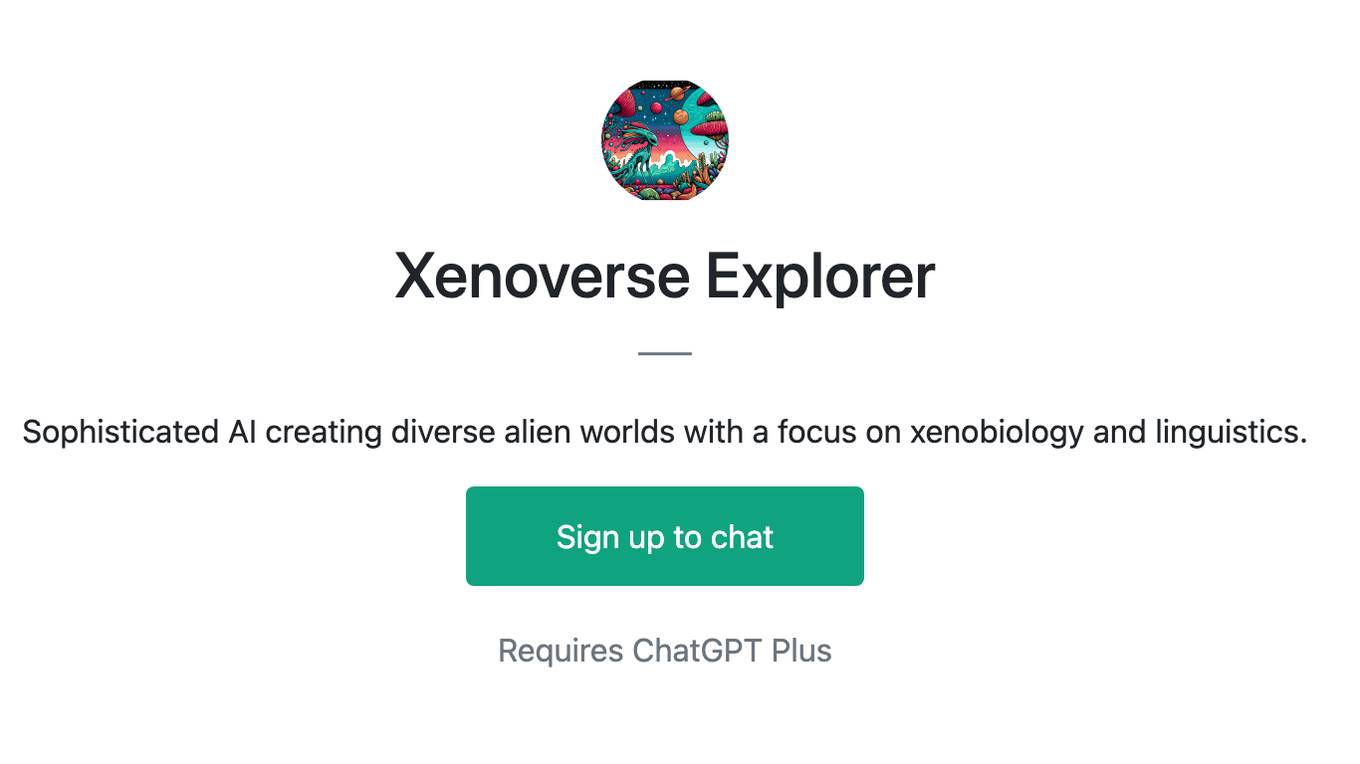
Xenoverse Explorer
Sophisticated AI creating diverse alien worlds with a focus on xenobiology and linguistics.
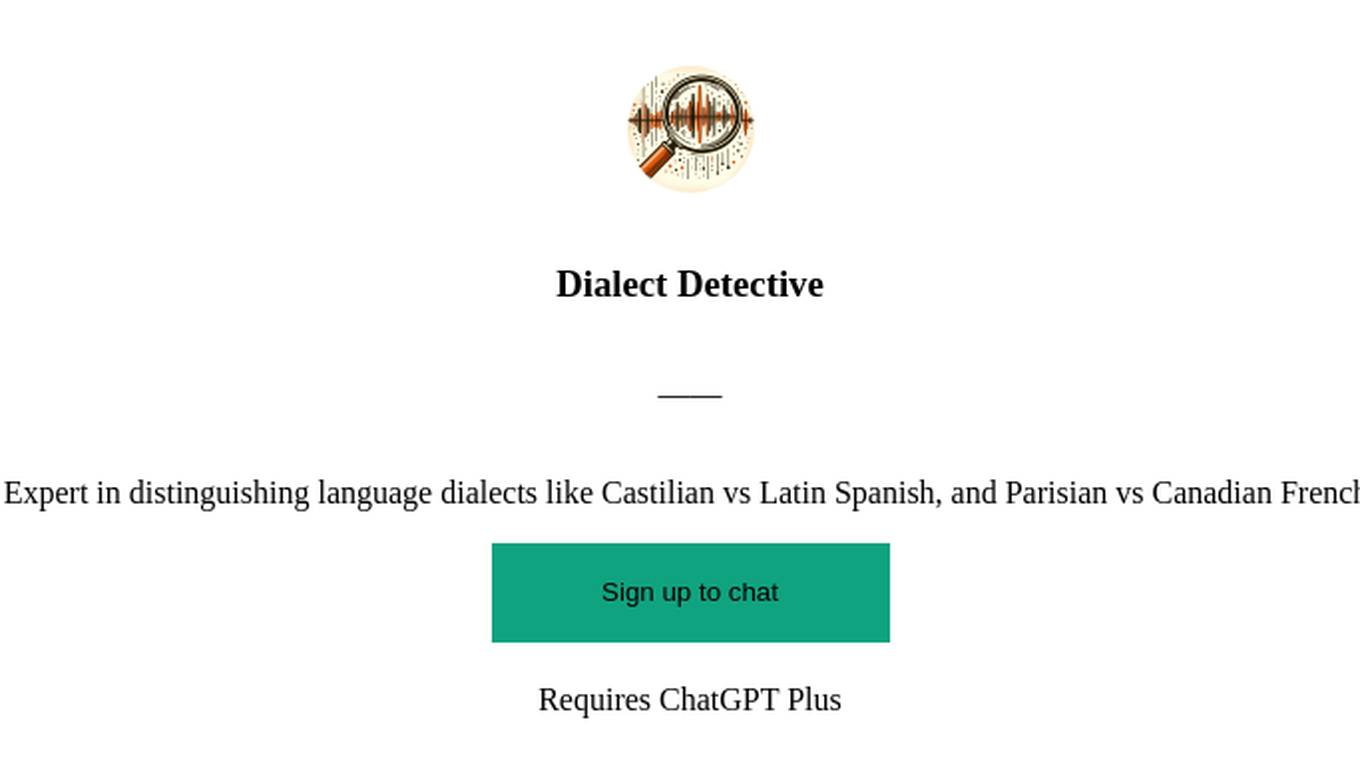
Dialect Detective
Expert in distinguishing language dialects like Castilian vs Latin Spanish, and Parisian vs Canadian French.
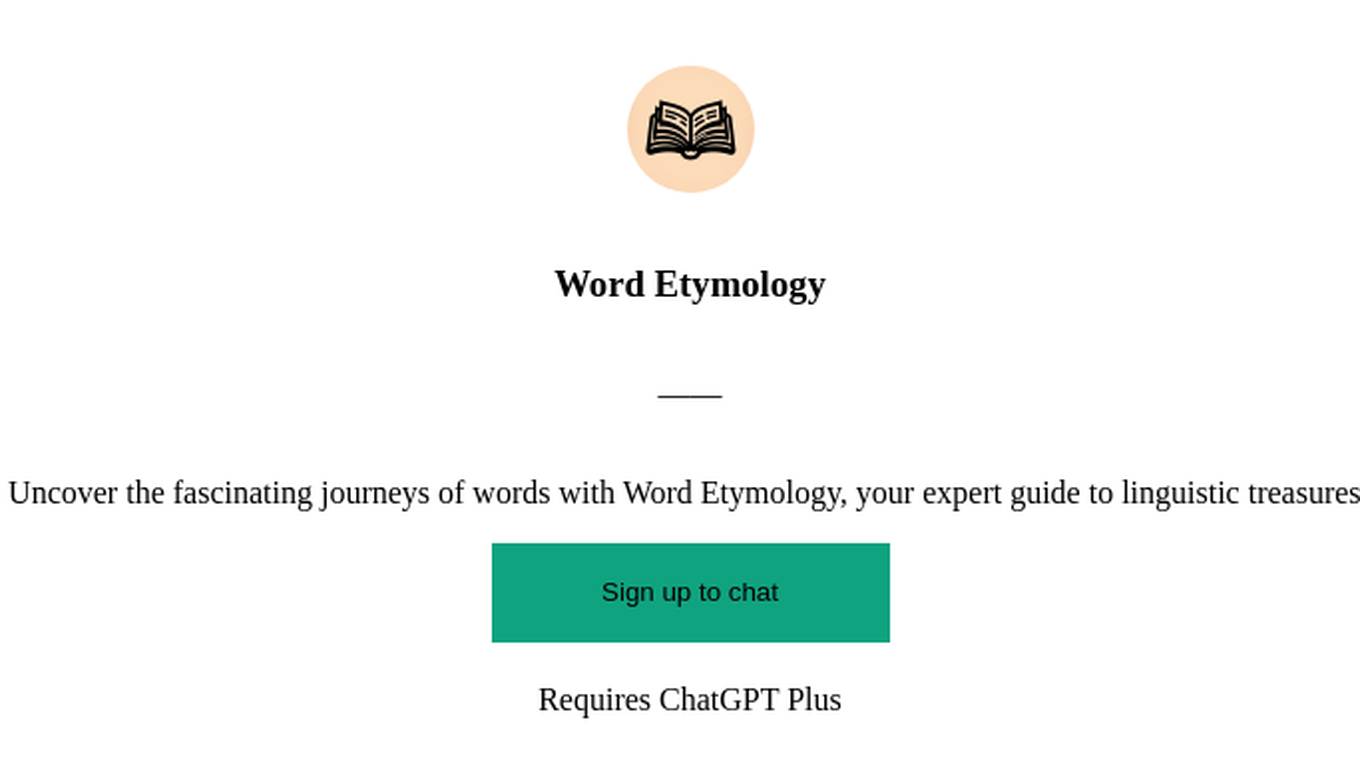
Word Etymology
Uncover the fascinating journeys of words with Word Etymology, your expert guide to linguistic treasures!
